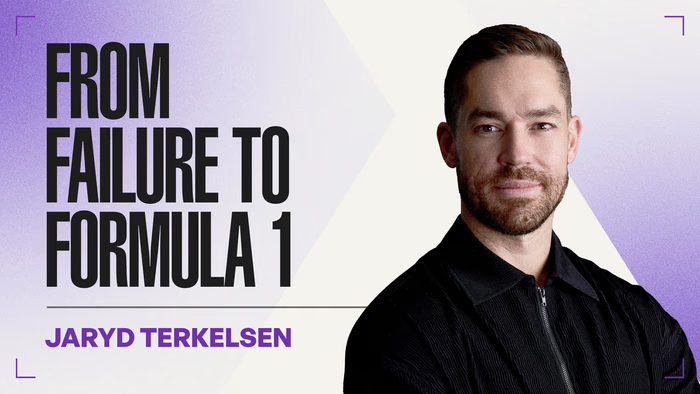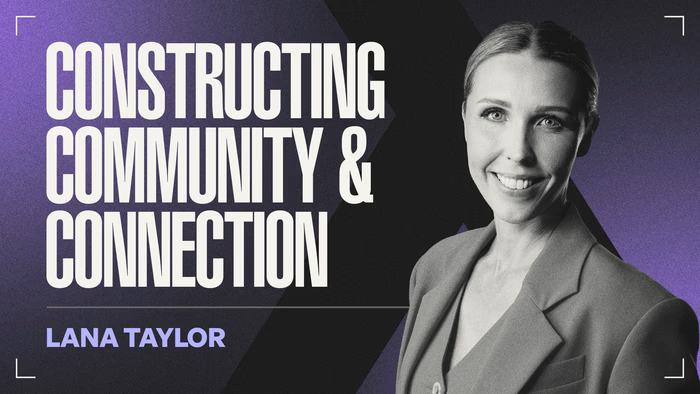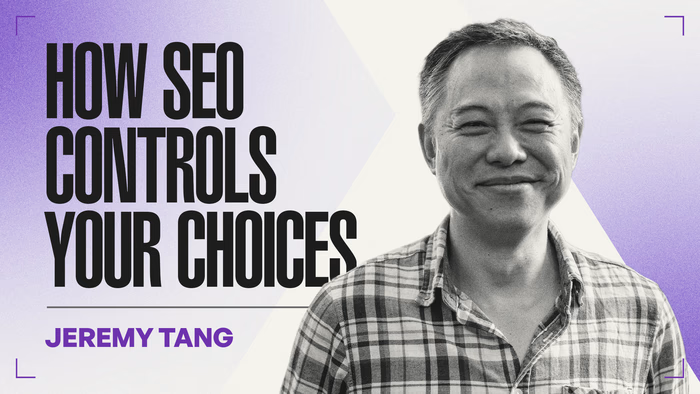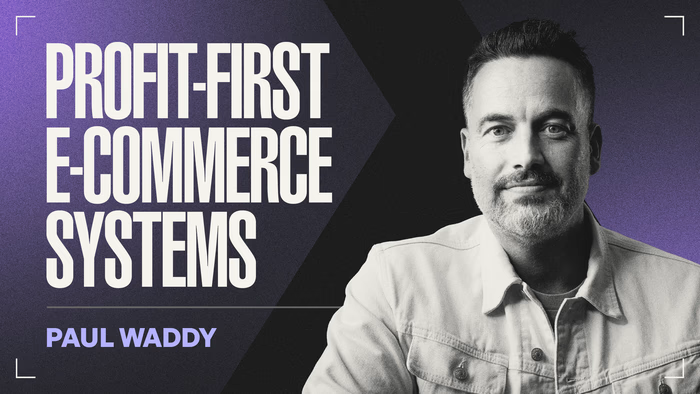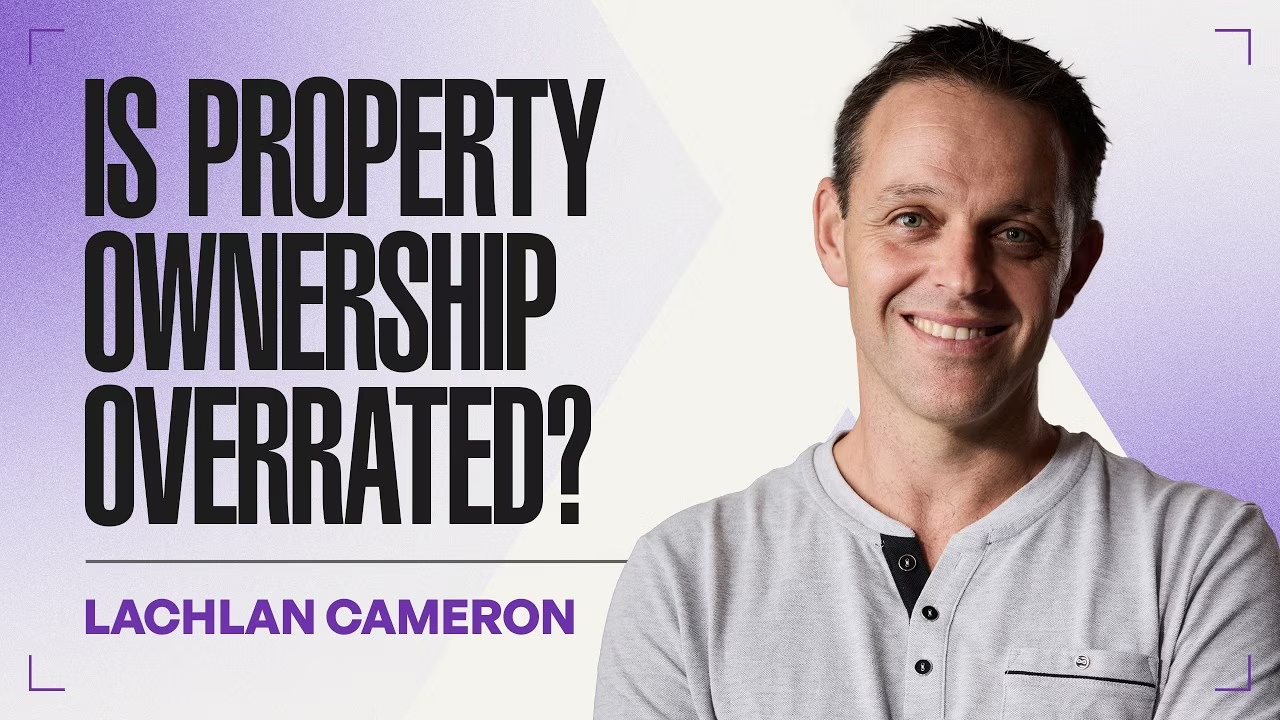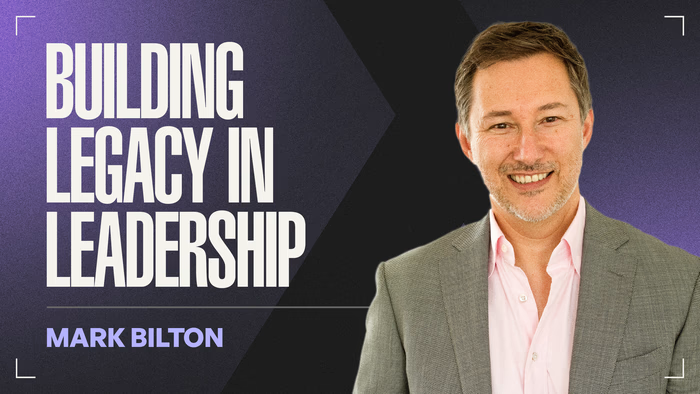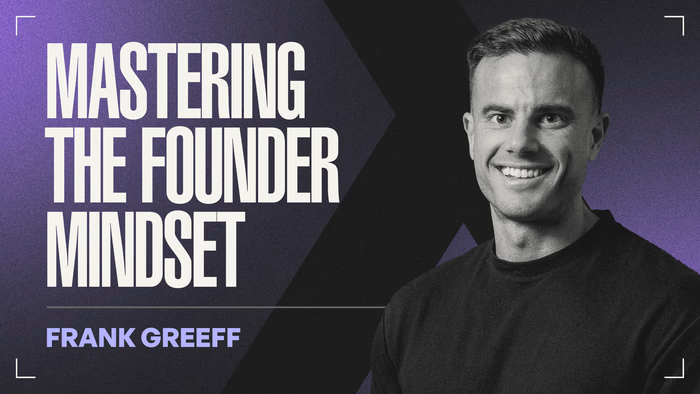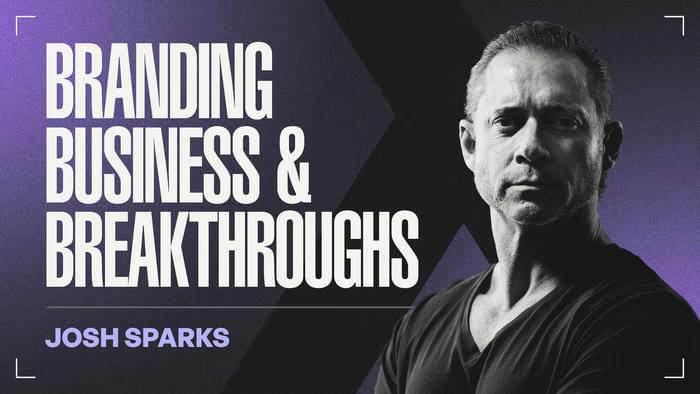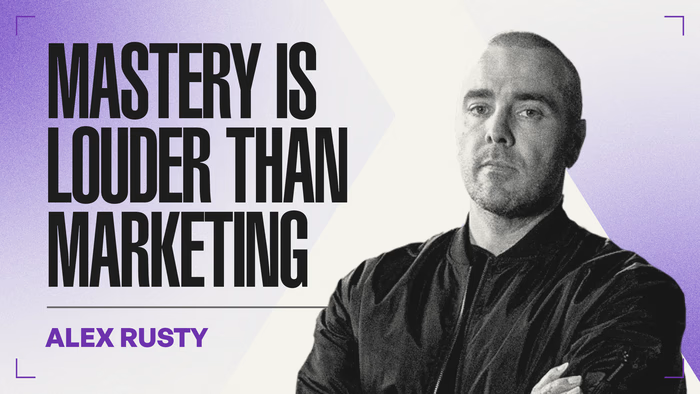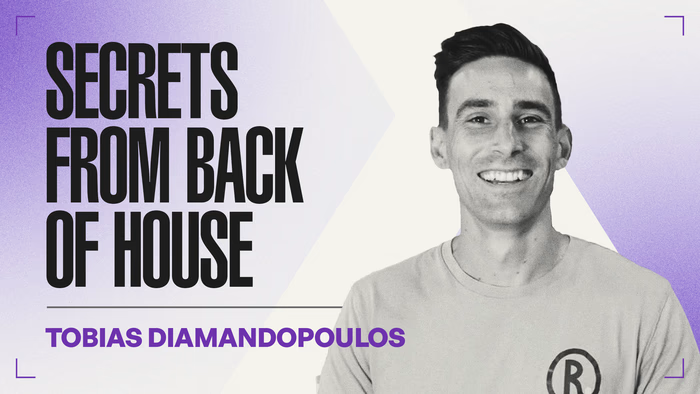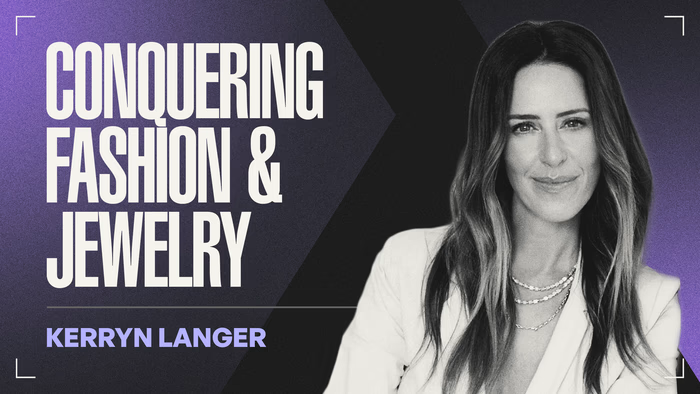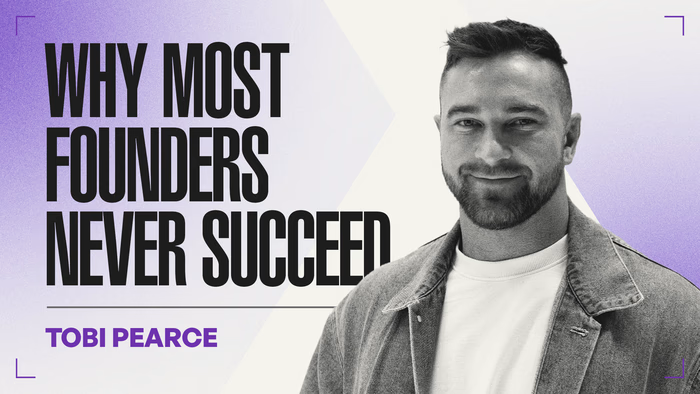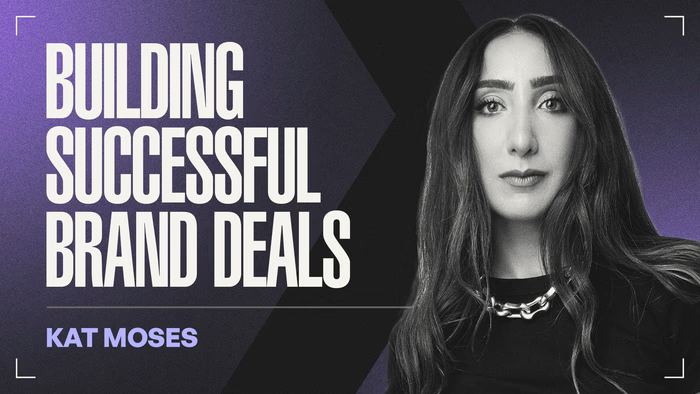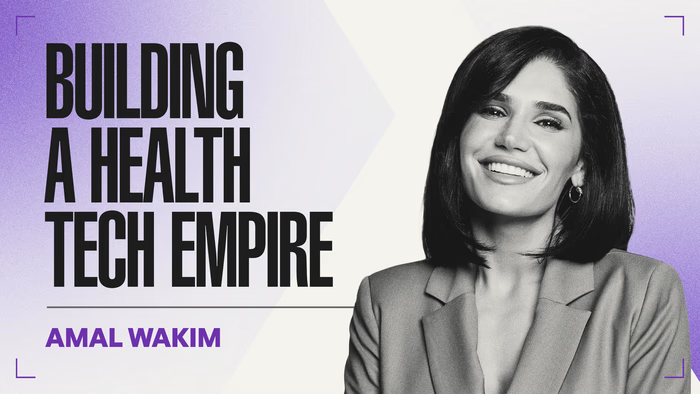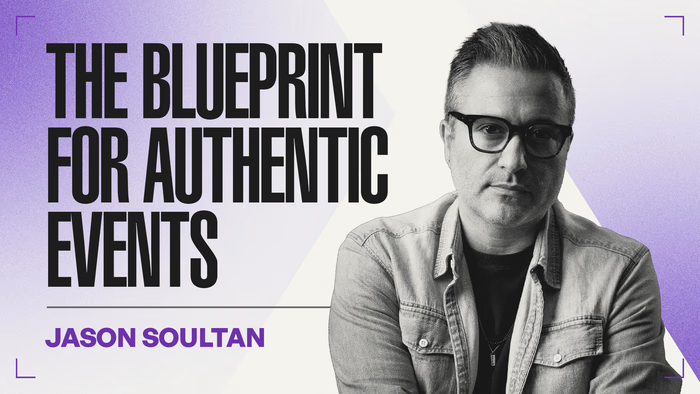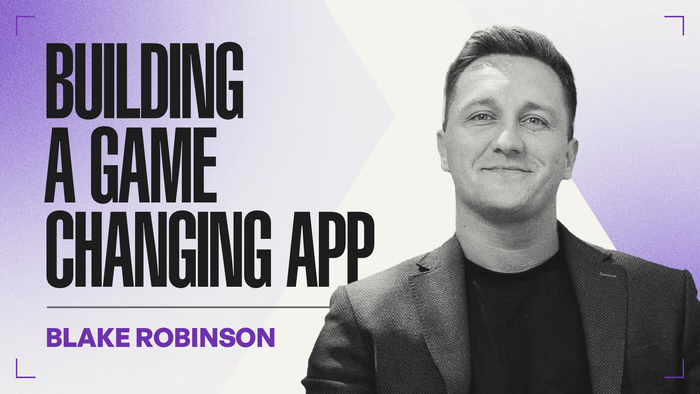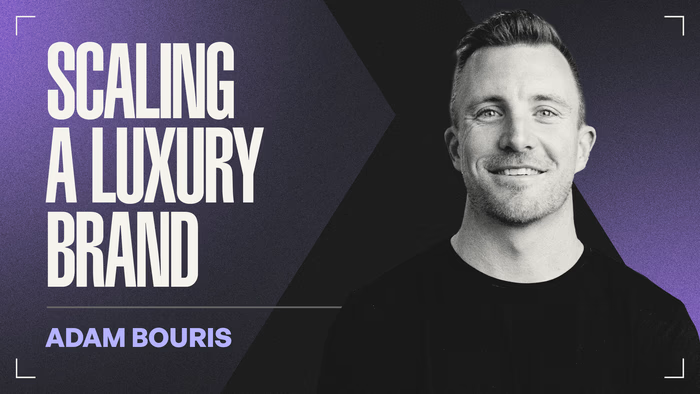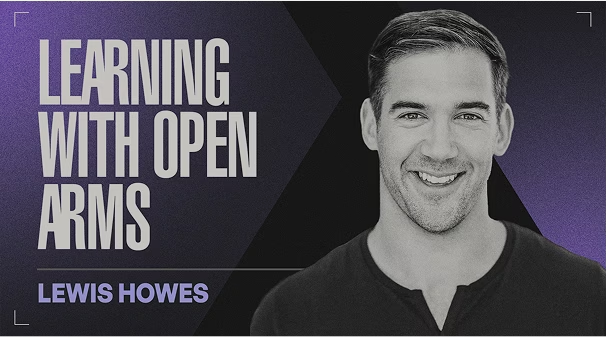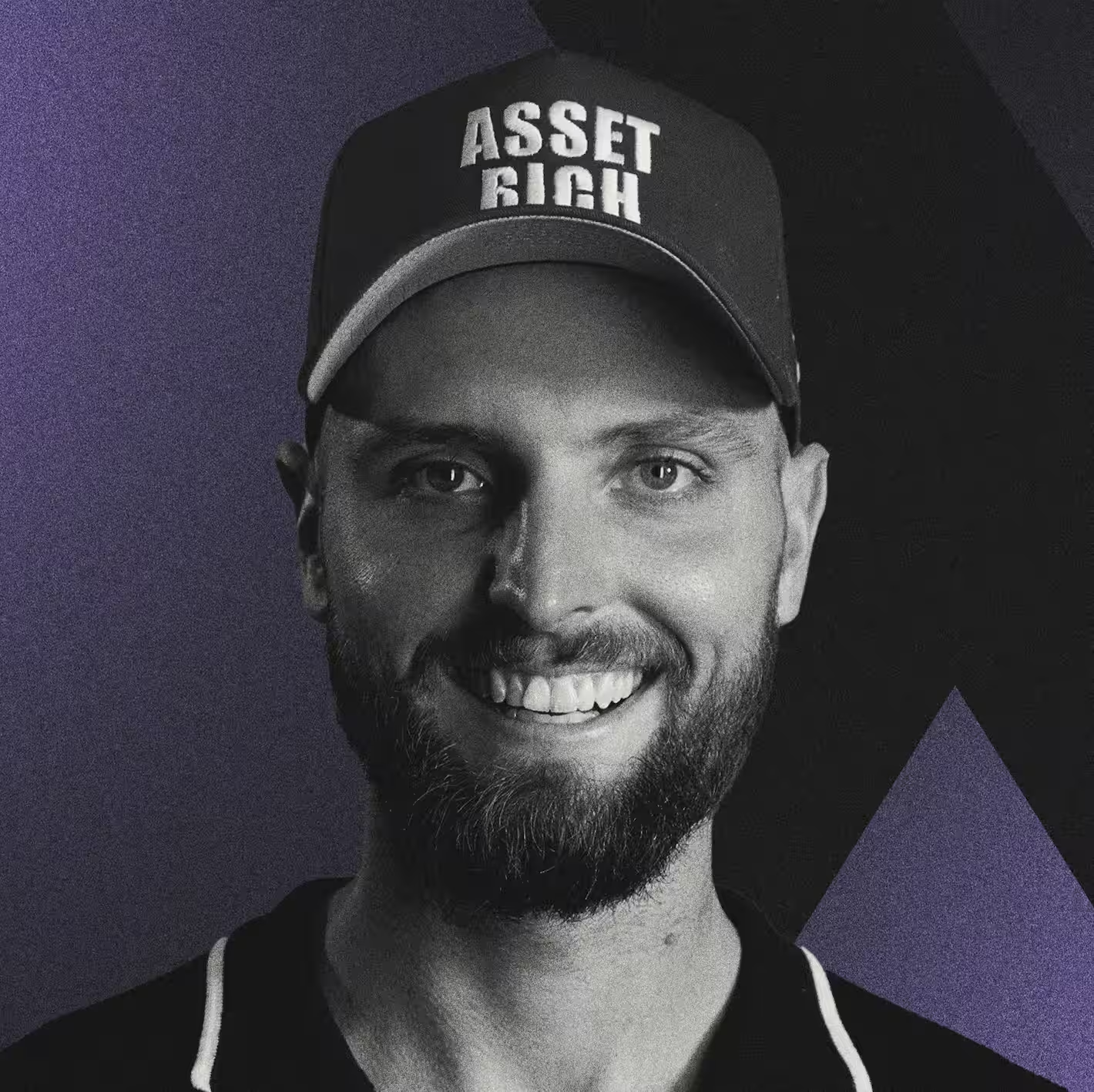


TLDR
Summary
The interview features Jack Henderson, a real estate entrepreneur and founder of Henderson Advocacy, who discusses his ascent to building a $40 million personal property portfolio and critiques the prevalent "victim mindset" he sees in the Australian housing market.
Jack's philosophy is rooted in radical accountability: he believes everything that happens in his life is his fault, which means he is also the solution to every problem. He views the cost-of-living crisis as a spending crisis, arguing that most people choose to prioritize convenience (Uber Eats, travel) over financial discipline (saving a property deposit). He highlights that his direct, polarizing social media content is a deliberate strategy to draw out the divide between victims and champions, which fuels viral engagement and attention for his brand.
Core Beliefs & Strategy:
- The Victim Trap: He asserts that people who blame the government or society for high housing prices are simply engaging in a victim mindset, giving away their power to solve their own problems. He argues that the market is only expensive because people can afford it, and if one cannot afford to live in a major city like Sydney, they should move to an affordable location and rentvest.
- Wealth Creation: Wealth is a mindset that requires long-term commitment. It starts with financial discipline (earning more than you spend) and involves sacrificing short-term desires (like excessive travel or high rent) for long-term compounding growth.
- First Property Strategy: He advises first-home buyers to leverage all government incentives to buy their first investment property in an affordable area, then rent where they want to live (rentvesting) to maintain surplus income and lifestyle flexibility.
- The Unassuming Champion: Jack prefers to be underestimated, using the initial low expectations to his advantage. He believes that every successful person he knows has a similar pain point or trauma that drives their success, but they have chosen to transform that pain into a driver rather than an excuse.
- Life Motto: He does not pursue a legacy but simply seeks to live an "incredible life" defined by authenticity and action. His internal motivation is constantly tested, but he believes he's only ever "one good sleep away from getting back on the path."
Highlights
- Mindset: Success is built on radical accountability; everything that happens is your fault, which makes you the solution to every problem.
- Market Solution: The cost-of-living crisis is a spending crisis. If you can't afford Sydney, move elsewhere and rentvest—don't wait for the market to adjust.
- Renting Strategy: He is a rentvesting advocate, advising that renting is cheaper than owning and provides the financial liquidity needed to invest elsewhere.
- Controversial Content: His posts are deliberately divisive to create a visible split between the "victims" (who blame society) and the "champions" (who argue for accountability), which drives massive engagement.
- Life as an Ultramarathon: Compares wealth accumulation to running a 200-mile ultramarathon, requiring the one-second decision to keep moving forward despite the pain.
- First-Home Hack: Take advantage of every first-home buyer incentive and treat the first property purchase as a pure investment to build equity, not a long-term home.
- Mantra: He lives by the philosophy that "Life happens for you, not to you," viewing every challenge as an opportunity for growth and learning.
- Personal Identity: He prefers being underestimated because he loves the surprise and internal satisfaction when he succeeds, proving others wrong.
Transcript
00:00:00 - 00:01:04
Growing up with no money is actually better than growing up with money. Jack Henderson is a leading real estate entrepreneur, keynote speaker, and thought leader who has built a personal property portfolio worth over $40 million. He's the founder of Henderson Advocacy, Endeavor Build, and Henderson Develop, which together has generated $25 million in annual revenue. I don't think this cost of living crisis or whatever it's being coined as is as bad as as people say. I truly believe that
00:00:32 - 00:01:35
if you are not a wealthy person, Sydney is not a great place to live. Jack continues to educate and inspire Australians through his direct and insightful social media content. What's your advice to someone in that situation? How can they start to play the game? I would say hi Mr. and Mrs. You can't afford to live in Sydney. There's a few pieces I believe to wealth creation. The first thing is you've called the cost of living crisis a spending crisis. What's your thoughts on this and unpack exactly what you mean by
00:01:03 - 00:02:00
that? [Music] I would like to welcome Jack Henderson to the agency podcast brought to you by Wick Studios. Thank you for having me, mate. In the fancy new studio, first episode, I hear. Yes, that's it. And um it's not radically different uh for the viewers at home, but for us, it's fantastic. The old studio was in the middle of our office, so if someone was making the loudest coffee in the world, um we would have to pause and edit it out, which people in agency world have a habit of doing. Yeah. Or they come out
00:01:42 - 00:02:38
from a call and high five and scream and holler and um so this is nice. It's out of the way. It's quiet, secluded. Honored to be the first one in the new studio. Yeah. Welcome, man. And um dude, you've been busy. So you've just, as I understand, you were explaining you you did an ultramarathon. You were inspired by Gogggins himself. Great, man. Um so yeah, what was that experience like for you, dude? Um yeah, it was my first 200 mile race. I've done 100 mileers and lots of 100ks and all the rest of it. Um
00:02:09 - 00:03:14
but it was a different beast. 330ks, 8 just over 8,000 mters of elevation. Um 72 hours of just in the darkness. It was good. Snakes. It was good. It was good. Um got fifth overall, but learned a lot about myself and you come out a better person after doing [ __ ] like that. So, um yeah, man. Onto onto the next challenge now. My feet look pretty banged up. Missing a toenail, few blisters that are recovering, but all in all, yeah, man. The scars of war. Scars of war. Exactly. No, it was good fun,
00:02:42 - 00:03:30
though. So, dude, you've been popping up a lot throughout media across the board. Um, I understand across a lot of different channels here in Australia. You're definitely hot off the press and people are getting their feathers ruffled. Uh, but I always like to see that. I like it when people challenge the status quo, have an alternative take, and even if it just gets people to think differently, man. It's it's important to do that. Now, you've called the cost of living uh crisis a spending
00:03:06 - 00:04:03
crisis and that people are lying to themselves potentially. What's your thoughts on this? and unpack exactly what you mean by that. Um, look, I I think regardless of the economy, there's people who are doing really really well in all economies and there's people who are doing really bad in all economies. Um, so I don't think this cost of living crisis or whatever it's being coined as um is as bad as as people say. Like there's no doubt about it that things are more expensive than what they were 5
00:03:34 - 00:04:35
years ago. Like that's just fact. Um but the five years previous to that we had next to no inflation. and it was a very flat inflationary period. Um, hence the reason rates decreased like they did because as rates decrease, they're trying to stimulate our economy which drives growth. Um, so if you look at the long-term average, we are no different to any other time. It's just that in a short period of time, things have gotten more expensive uh relative than what they maybe did the for the 5 years
00:04:05 - 00:05:03
previous. But people just have this habit of like looking at everything through a microscope and going, "Oh, well, fuel was x amount of dollars last year and now it's this." Or, you know, my rent's gone up by $150, but they neglect the fact that previous to that, and I did a video on this recently on my socials where um I used one of my own properties as the example, and uh it was a property that I bought back in 2016. So, the second property that I ever purchased. When I purchased it, it was
00:04:34 - 00:05:38
rented for $700 a week. between when I purchased it and now it went from 700 down to 66 600 or 650 then slowly creep back up and now it's at like $850 $900. So I said well over a 9year period my rent's gone from being $700 a week to $900 per week which is give or take 30%. Divided by 9 gives us a 3 to three and a half% inflation rate which is like bang on inflation. But like when my rent well when my property that I was renting out went from 700 to 650, the poor renter wasn't going, "Oh [ __ ] you know, thanks
00:05:06 - 00:05:56
so much, Jack, for a $50 decrease from what you rented from last time." But if I increase the rent, it's like, "Oh, you're an asshole." So, um, it's just life. That's just what it is. Like things get more expensive over time. It is not a new thing. Um, people just need to learn to live with it, but everyone loves winging. Do you think that it's a it's a quote unquote a victim mindset? And do you think that someone's Do you think someone's spinning the web though
00:05:31 - 00:06:26
on this narrative and benefiting from it? Yeah. I mean, people spin the web on everything, right? Like it's all being a victim is so much easier than being accountable, right? Because when you're a victim, your problems are someone else's fault. When you're accountable, your problems are your fault. Um, so, you know, I'm someone who is ultra accountable. Everything that happens in my life is my fault. the good, the bad, the ugly, the indifferent. Um, and the amazing thing about that is that if
00:05:59 - 00:06:47
everything is my fault, I'm also the solution to every single problem. The issue with being a victim and going, "Well, the government should have done this and and these people should have done that and blah blah blah blah blah," is that you're giving the power to solve your problems to someone else. Um, and that never ends well for anyone. I would agree. You're disenfranchising yourself and you're saying that, you know, woe is me. I'm a victim. I can't do anything
00:06:23 - 00:07:18
about it. My hands abounds. If only the world would change. If only the government said powers of be did what they had to do, everything would be okay. You're saying that if you get stuck in that frame, it it disenfranchises you to do what you need to do to actually succeed in life anyway. And no one cares. That's the issue. Like the reality is regardless of how you were brought up, the current situation you're in, the things that you've been through in your past, all of that stuff, no one actually cares. No
00:06:51 - 00:07:54
one. People think they care, but no one actually cares. So, if no one actually cares about all your problems that you think are the biggest in the world, then why the thing that I can't get my head around is like if no one actually cares about your problems more than what you do, why don't you just be the champion of your own life and go and solve your problems? Um, but man, yeah, victims [ __ ] do my head in like severely. Oh my gosh. And uh I mean I mean the good thing about it is the more
00:07:23 - 00:08:07
content I create which uh which ravels these people, the more views I get and the more engagement I get. And it's like this clear divisive line where you have like victims go to the left and uh and people who are not victims go to the right and they just like fight each other in my comments. It's the greatest. You sit back and enjoy the show. Literally, I don't even have to comment now. Like someone can comment on one of my posts, "Jack, you're a scumbag. [ __ ] you. You're the reason property prices
00:07:45 - 00:08:37
are so expensive." And then like I don't have to comment now. someone else will jump in and be like, "Fuck you. Jack worked hard. He started when he was young." I'm like, "This is the greatest thing ever." Is that a part of your strategy now? Yeah, of course. Like, of course. I mean, the stuff that I say I truly believe. Yeah. The way that I say it is the thing that you know is divisive. So, um I was talking to a a friend of mine earlier today and he asked me, "Oh, I
00:08:12 - 00:09:06
saw the bit of content that blew up where you said if you're not rich, you shouldn't live in Sydney." Um or you can't live in Sydney. Now that statement is true. I truly believe that if you, you know, are not a wealthy person, Sydney is not a great place to live because if you live where I grew up in Western Sydney to drive to the city, it's an hour and a half, two hours, cost $40 each way in toss, two hours of your time every day, how much is that worth? Um, and you have no lifestyle in Western
00:08:38 - 00:09:38
Sydney, right? So, I grew up out there and I moved when I was 21 from Sydney to Newcastle and all of a sudden I lived by the beach. I had no tolls. It took me 20 to 25 minutes to get to work. I was earning more money now because I was working in the mines. And uh I had a better lifestyle for less money. And I'm like, why do people not do this? Like if I mean I had these huge aspirations to want to be super wealthy, but I'm like why do more people not move from where they grow up to live a better life for
00:09:08 - 00:10:01
less money and potentially earn more? Um so my statement around like you know not being rich and not living in Sydney is very true. Like if you are an average income earner, you can have a way better quality of life in another location and um and not have all the stresses you have when you live in Sydney or any major city for that reason. Why is it that you think people feel the need to stay grounded where they grew up and around their family and friends because I can understand moving away could seem
00:09:35 - 00:10:24
traumatic for some. Yeah. It's a belief system, right? Like it's like, "Oh, I need to be here. My kids are here. My mom and dad are here. My blah blah blah blah blah." It's like that's not true. Like that's not true at all. If you were forced to move somewhere, you you like make it happen, right? Um but that that's like if you asked me before about the victim mentality, and that's the thing that I don't understand. It's like there is a solution to every problem. If
00:09:59 - 00:10:41
it's more expensive to live in Sydney or live in Brisbane or live in whatever city you live in and it's so, oh, I can't buy a property. It's like that's not society's fault because the only reason property prices are what they are is because people can afford to pay them. otherwise they wouldn't be at that level. So if property prices are at that level, people can afford to pay them and they're only getting higher. The problem's not going to get better. So if
00:10:20 - 00:11:06
you're not going to either earn more money to be able to afford to live the lifestyle that it costs to live in that city, do you just want to earn the same amount of money? Then you should go and move elsewhere and live a great life in a cheaper location. But then they go, "Yeah, but Jack, if I go move somewhere else, how am I going to Well, like I can't get a job. Where am I going to earn money?" And it's like that that's not even true. It's like I'm an employer. If you're an employer, it is
00:10:42 - 00:11:30
so hard to get good staff who show up, want to work, and want to earn good money. So, you'll get a job anywhere you want to go. I think if you got talent, you'll get a job anywhere. Yeah. If you're a useless prick, uh again, it's your own fault. Like, you will not get a job anywhere if you're a useless prick. Doesn't matter if you're in Sydney or in do. It doesn't matter, man. No, I agree. And it is it is difficult to find good people. And it's not because of like
00:11:06 - 00:12:01
lack of skill. It's usually mindset, attitude. on that topic when we talk about the victim mindset for you. What do you how do you define that? And then why do you think it's more common that someone has one and uncommon that they don't? So um it's more common that people have a victim mindset because more people have victim mindsets. So like if you it's like there'd be 90% of people in the world. If I went and interviewed 100 people on the street, 90 of those people would be victims and 10
00:11:34 - 00:12:34
would be not victims. Um hence the reason those vox pop street things with content do so well, right? because they just get like all of these like have you seen now co-osite ever do those things like they do so well because like most people's lives are cooked you know they do these interviews and people are like what the [ __ ] um and I always react to them and they do so well um but um yeah the the reason is because there's way more victims than there are not victims and the the thing that I define a like the victim
00:12:04 - 00:13:06
mentality is just um when people push blame for their own problems onto societ society or into other people. Like like I said, every problem in my life is my fault. I've created it whether it's like an external thing or not. Um you still allow that problem to either happen or exist. Um and I just love and that's a learned um skill because like being being someone who is accountable is is you have to learn how to do that and you constantly have to catch yourself, right? Where you're like ah business is
00:12:35 - 00:13:18
every every day is a different day. Sometimes you feel like a billionaire and you're killing it. And some days you're like, "Why the [ __ ] do I do this?" But at the end of the day, everything in business is your fault and you're also the solution for it. Um, and in business, the awesome thing about is if if you go out of business, you go broke or or you're no longer in business, no one goes, "Fuck, man. I'm sorry to hear that. That's no good." They like they cheer like, "Fuck yeah,
00:12:56 - 00:13:48
that guy's gone." You know? Um, that's the victim mentality or like that tall puppy syndrome where if you're doing really well, they don't. It's the opposite. They're like, "Ah, [ __ ] that guy." you know, he's doing well because he's ripping people off or he's like a scammer or there's always a reason that someone else is doing better than what you know, the victim is. Yeah. I find it's like a chasm of disbelief and they can't summize from experience how you're
00:13:22 - 00:14:07
doing what you're doing. So, they're like, maybe there has to be something nefarious happening for that to take place because I've worked really hard. I've really tried. I couldn't succeed at it. They're definitely doing something sketchy. even though they can't prove it with receipts, they just want to throw stones and um you know try to put you in in a category of they're a glass house, I'm just going to throw stones. and even the way that people look at other people
00:13:44 - 00:14:36
that you know perceive to have money for example and the good thing about me having a level of reach and I'm sure you see this now with online is like you get the full sphere of like you get a really if you get three or four million views on a post for example like that's a pretty good sample size of the Australian population you know um and you know if you're capturing 70 or 80% of those people being nonfollowers so that people who don't know really who you are and they're commenting and
00:14:10 - 00:14:58
engaging with your stuff. It gives you a really good understanding of like the mindset of the masses and you look at comments and and when they're saying, "Oh yeah, it's all right for the rich or it's all right for like you wealthy people." And it's like even just that where they seclude themselves as a poor person or someone who's not rich and they go like the wealthy or the rich. It's like they're virtually just saying that I'm never going to be that person
00:14:35 - 00:15:31
and I'm always going to be poor. And again, that's like a trap. They've trapped themselves into being like, I was born this way and this is how it'll always be and it's me versus them or us versus them, you know, instead of reframing it and being like, which is what I did. If that person can do that, I can do that. So, how do I do it? Business owners, if you're stuck using one platform for every project, you're probably stuck in a growth bottleneck. More clients means more hires, which
00:15:02 - 00:16:08
just adds noise and cuts into profits. To break the loop, you need flexible tools that don't stretch your resources. Wix Studio is a smart addition to your business toolkit. Intuitive by design, your team can quickly master the platform and focus on the work that matters the most. Then keep up the momentum with a built-in management tool, a unified dashboard, reusable assets, and a Figma plug-in that turns static design into launch ready websites. With robust native business solutions like bookings, e-commerce, and
00:15:35 - 00:16:41
events, you can take any project at any scale without the added cost of third-party plugins. Plus, Wick Studio is a lowmaintenance platform, meaning you can redirect the client budget towards real growth initiatives. Think more value for clients, steady income streams, and stronger relationships. To get started, simply go to wix.com/studio. Do you think it's because people have not had success or they've attempted to and it's not gone well that they just give up and put themselves in a box? Like what is it
00:16:10 - 00:17:00
that you think really puts people in this situation where they're in an almost defeist mindset like it can't be done, the rich are over there, I've always been poor, I have to stay here. It seems like even though it doesn't feel like it, it's a decision that they've made at some point. Definitely a decision. You know, I'm a a platinum member of Tony Robbins's like mastermind. Um you know, that's the first thing that they educate you on which is like everything in your life is
00:16:35 - 00:17:16
a decision and nothing has meaning until you give it meaning. So, like the reality is nothing actually has meaning. We just give things meaning because we're humans, right? Everything needs to have a meaning. That's why we're always trying to like piece things together in our head like why did he say that? Why did she do that? Why did this happen? And it's like maybe it just happened because it [ __ ] happened. It's live, you know? It's funny. Um, and I read this incredible book once by a guy by
00:16:56 - 00:17:50
the name of Derek Civers. I'm not sure if you ever come across him before. um he's like undercover, has no social media, sold a company uh many years ago for massive money, donated 100% of it to charity, and um he wrote this book called Useful Not True. And it's an incredible book and and it essentially just talks through um the beliefs that we walk around in our life with. Every single person has beliefs. Um and the funny thing is we're not conscious a lot of the time that we walk around in life
00:17:22 - 00:18:17
with what we feel are truths but are just beliefs. So like we think things are factually true when in reality they're not true. That's just the way that we believe something is. Um because in reality there are only certain things that physics actually proves to be like true. You know there's only a few things in in life which are actually true like um you know gravity for example like that's an undeniable truth. Yeah. Um when most things are subjective and it's just a belief but we walk around in life
00:17:50 - 00:18:50
going like no this is the way it is and this is the way it always has to be. And if you ask the same a different person, sorry, the same question, they're often going to have a different answer. So, which one is right? Example of that might be, I suck at reading, right? It's a limiting belief or um I don't have many friends. Like these proclaimed limitations that you kind of enchant on yourself. Yeah. Yeah. And and you know, if you tell yourself a that enough times the same thing over and over again, it
00:18:19 - 00:19:23
just ends up being your truth, right? um where you can sort of reframe that which is what I constantly try and do. I look at people. He spoke about the 200 mile ultramarathon at the at the start. And I remember reading David Gogggins's book many years ago, his first one. Um, and then I read Never Finished. And he spoke about running this 205 mile run. And I was like, [ __ ] me. Like, how does someone run 300 plus kilometers? And at the time, I was probably running like a half marathon or something. Um, you
00:18:52 - 00:19:46
know, and at that point in time, you could be like, "Oh, wow. I'm not I'm not that guy. I'm not David Gogggins. Or I was like, if that [ __ ] can do it, surely I can do it. And then over time, you just build to something and then you do it and all of a sudden now you're the guy that can run a 200 mile run. Um, so that's how Yeah. I mean, that's how I like to operate and think and man, I'm constantly constantly working at that stuff. What are some things that someone can do
00:19:19 - 00:20:13
to start catching themselves with this type of mindset and how do they start to shift into, you know, more of a victor mindset, you know, conquering and accomplishment versus, you know, I can't do this? Yeah. So, I think well, the way that I do it is like um because I'm I'm a human, I still have envy and I still get jealous and you know, I still try and tell myself the reason someone else is more successful than I am. Oh, they've been in business longer than me or whatever it is. you know, like
00:19:46 - 00:20:41
everyone's got their own little things that they talk to themselves about. Um, and it's just about like being conscious enough to catch yourself and go like that's you're just being a [ __ ] knob. Like that's not the way it is. Um, if you were to talk out loud and tell other people what you were thinking right now, most people would think you're an idiot. Yeah. If you read aloud any given moment, it would sound horrendous. Mine would be so wild. It'd be like, "Oh, look, there's a cat. Oh,
00:20:13 - 00:21:11
what do you think?" Um, so I think the the first thing is like fully acknowledging that you know nothing and that you're starting from like ground zero that because like you need to accept the fact that you are a nobody and you're starting from nothing when you really are. Um, and then when you've accepted that, then essentially every conversation you go into, every bit of information that you start to consume, you're more like you're more curious around it as opposed to like
00:20:42 - 00:21:28
most Australians or and I'm assuming most people in the world when they hear something before they've even been able to like take it in and understand it, they make a decision straight away like, "Oh, that can't work. Oh, that's bullshit." You know, you've ever caught yourself doing that. Yeah. Like the immediate instinctual dismissal of something. That's right. I'm stupid. I can never do that. I can never run 300 miles. Like it it just seems more reactive than thought out. Yeah. Because
00:21:05 - 00:21:56
it's like your brain is obviously programmed of millions of years to protect you as a human. Like that's what we're we're programmed to do is is be protected by our brains not to be like curious and explore things because you know back in the cave man days if you explored a lion they'd [ __ ] mole you to death and that's not a good thing. Let me try this plant. Yeah, that's right. Um yeah, so that's the that's the first thing is just knowing like, okay, I know nothing. I'm starting from zero.
00:21:31 - 00:22:22
The only way is up and then obviously building off that. And I see it all the time when I have conversations with people and and like the first sign is someone who knows it all. You know, like I know very little and I'm happy to admit that I know very little outside of my little niche of property. Like I don't know a lot. And anytime I'm in a conversation when I don't know something and I'm ask a question, I just simply say [ __ ] do I know. I'm not the guy to ask. Um, and then I also am am conscious
00:21:57 - 00:22:50
of the fact that if you compare me to someone like Warren Buffett or to Steven Schwarzman, who was the founder of Blackstone, for example, from an investment point of view, I'm like this knowledgeable in comparison to those guys. So, as an investment expert, am I really an expert or am I just more intelligent than the average punter and they're really experts? Um, so I think that's like it's just a self-awareness piece and wanting to not be a useless prick. That makes sense to me. And I I I
00:22:23 - 00:23:21
I think this like concept around victim mindset is deeper in people than they realize. You know, I I work with a lot of people and you catch it and they're super resistant to it and even they'll go to the lengths of justifying why they're justifying. So they're so entrenched in it and and it can be hard to shake this stuff. When you're looking at the market and in Australia in particular with what's happening right now, the rhetoric, the news is uh price inflation. We're living in a housing
00:22:52 - 00:23:48
crisis. Um, you know, unprecedented numbers and there's memes and there's culture and it's in, you know, it's in the news, it's on television, it's in media. When you're drowning in this message and this subject matter, what's advice to those people when they're getting entrenched with this and how can they start to reformat how they see the world when it seems like everyone's going in one certain direction? H. So, the way that I do it is like, okay, there's a housing crisis. Inflation's
00:23:20 - 00:24:18
out of control. That's a fact. Let's just pretend it's a fact. Now, what? Like, what does it do? Let's just assume it's a fact. You are right. There is a housing crisis. Things are way more expensive than what they were. Life is hard. Step one. Now, what? Yeah. What does it solve? Nothing. Nothing. Like, nothing is solved by saying it. So, it's like, okay, that's a fact. Now, what can we do about it? the same thing you can do if there's no housing crisis and things aren't too
00:23:49 - 00:24:42
expensive. Like whether you agree or disagree with it, it doesn't actually change anything. It's like it just is what it is. So the narrative, whether it's true or not, put it in place and go, "Cool. So what? Therefore, next." That's right. So houses are too expensive. What are you going to do about it? Do you want to go buy one of these expensive houses or do you not? You do. Okay, great. You want to buy an expensive house. Awesome. If you buy an expensive house, do you hope it gets
00:24:16 - 00:25:04
more expensive as time goes on or less expensive? More expensive, of course, because if it got less expensive, you'd lose money and you only want things to be less expensive when you're not in the market. So, when you get into the market, all of a sudden, you have a different mind frame. You're like, "Property prices aren't too expensive. We need to be more expensive." Um, because you're in, right? So, um, do you think that's what's driving inflation is the people that are in, they seek to
00:24:39 - 00:25:28
benefit from this. So then it's almost like, hear me out here. If I was to play devil's advocate and if I was looking from the outside in, and some of the conversations I've had with people have been, well, I don't have a parent that can give me the dough to put into the market. I don't have a friend. I don't have someone that can kind of seed me to get in. My parents aren't in. They don't own a house. And there seems to be a divide where it's like if you're in,
00:25:04 - 00:25:49
you're in. If you're not, you're not. What would you say to that? Cuz even that in and of itself could be a limiting belief. It is a limiting belief. Victim mindset, of course. Like, my parents aren't in. I don't have anyone to give me the deposit to get in. You're just giving the solution to your problem to someone else because you're like, I need help to get into the property market. When the reality is, no, you need to save money. That's what you need to do. That's the actual fact.
00:25:26 - 00:26:15
You need to spend less than you earn. And then what is left over is called savings. And then you put that away for a long enough period of time and you have a deposit. Um, so it's all about priorities. That's the key. Um I don't know too many young Australians who haven't traveled these days before the age of 30. Whether you do it on a shoestring budget or not, like it costs money. Oh yeah. And like generally when you travel, you also choose not to work for a period of time. Like if you're
00:25:51 - 00:26:50
traveling for longer than say a month or two. Um so you've made a conscious decision not to work and to value travel and experience over getting into the property market. So in five years time, is it wrong of the property market to be more expensive than it is right now? No, it makes sense that over time it should seek to increase, especially if more people if the market is becoming more invested in trying to get in and that's a growing market. For sure. So, is it the market's fault that you can't
00:26:21 - 00:27:12
get in, it's more expensive, or is it your fault for choosing not to get in when it was less expensive? I would say it's my fault. Cool. And if people don't say that's my fault, again, that's okay, but what does it solve? Nothing. Nothing. So like um and the other thing that people can't conceptualize is that if I use the example of Sydney, people go, "Yeah, but when my parents bought in Sydney, they bought a house for 5,000 or 20,000 or 1,000 or 100, whatever the number is, doesn't actually matter." And
00:26:46 - 00:27:45
it's like, "Yeah, abs, they did. Absolutely they did." And our population was probably 10 million, not 27 million. Or it could have been 15 million, not 27 million. Um there was way more land in Sydney than there is right now. There was a smaller population. There was less wealth. there was less a less um condensed um or or saturated um form of wealth, right? Like lots of wealthy people now live in Sydney which attracts more and more wealthy people. Um so yeah, absolutely it was it was cheaper
00:27:15 - 00:28:07
and it was probably um I wouldn't say easier at the point in time because when they got into the market that was just the normality. It was like it was still hard. Like if you ask any parent, it's like it was never easy, right? Interest rates were high, repayments were still there. It was never like [ __ ] me, let's go buy 10 properties. this is easy. Um, so now it's just a different time. So that's why I use this example of like when you're born in America today, do you get born and go, I can't believe I
00:27:42 - 00:28:30
can't buy I can't afford to buy an apartment in New York. Of course you don't. Because there's just this belief and common understanding that New York is an expensive place where rich people live. Correct. That's right. Yeah. And that's how Sydney's going to be. Like whether you like it or not, that's just how it's going to be. So when you're born in Australia, I believe in 50 years time, it's not going to be normal to go, hey, I want to go buy a house in Sydney or in Brisbane or
00:28:06 - 00:28:51
in Melbourne because that is where the rich people are going to live. Yeah. And I think it's like you look at the historical data and you go, well, my parents could have. And you're saying that, well, now you can't. Yeah. But that's just like saying, well, back in the Roman ages when you got given land, you were you were given a million acres or whatever the [ __ ] it was. was like, "Of course, but we're not in the Roman ages anymore, right?" And it's like, you
00:28:28 - 00:29:23
know, people never used to live in apartments and now they do. And people never used to be able to go on the internet and now they do. And there was never the ability for punters like me to have a voice and go on a podcast and now they do. So, it's just the world. Things change and you know, that's one thing you can guarantee in life is that thing everything's going to continuously change. That's right. Yeah. Okay. If we take the Sydney game and we let's just say we hypothesize that the system is
00:28:55 - 00:29:45
rigged against us. Let's say there is a divide of wealth and that the wealth when you say us, who's us? So let's let's play a game metaphorically here. Let's assume that I have a victim mindset and I'm looking at the Sydney market and I would say that okay there's the wealth class, there's a middle class and then there's the you know um poor people. the poor people uh and I'm in that class and okay so when you say us you mean us pause us poor people let's
00:29:20 - 00:30:20
presume and I'll play that role and if if you think about it let's just say the the the notion might be I want to buy a house in Sydney for my family and let's just say it's 1.5 million um I would then need a $300,000 deposit which would mean I'd need to earn 500,000 to spend the 300,000 which would mean I'd have to earn and save 50,000 a year for maybe 10 And then this $1.5 million property is going to be 3 million. Exactly. Right. So in that predicament, let's just say
00:29:50 - 00:30:37
that's that's the challenge. The David vers Goliath moment that they're facing. What's your advice to someone in that situation of like how can they start to play the game? I would say hi Mr. and Mrs. You can't afford to live in Sydney. That's what I'd say. Yeah. Because if you could afford it, it wouldn't take you 10 years to go and save for a deposit based on your incomes. Um, and I would say it's probably not a great idea to go and buy a house in Sydney because
00:30:14 - 00:30:55
even when you do buy it, then what happens is you're tied to a mortgage for 30 years that takes up 70 to 80% of your disposable income, which means you're going to feel very poor. You're going to have a house in Sydney, but you're going to have a house in Sydney and be poor. You won't be able to leave it. So instead of depleting 30% of my income household wise 70%. Because I'm trying to over index on something I shouldn't have. Yeah. Well, you're going to you're
00:30:35 - 00:31:30
going to go buy a house. You're going to have to pay your mortgage repayments. you're going to have to all the costs that come with owning a house, like council rates, repairs and maintenance, everyone wants to renovate, everyone wants a new kitchen, blah blah blah blah blah. Um, and that's what 90% of people do. That's why 90% of people are poor. Even if they own a house, most people spend minimum 60 to 70% of their net income on their mortgage. Then they have to live with the rest. Um, so I believe
00:31:02 - 00:31:53
that most people shouldn't live the life that they do. And I'm like a big rent vesting advocate, right? So, um, what's rent investing real quick? Which is just like renting where you live and then investing elsewhere. Okay. And then here's what the us say, which is the poor people. Why would I pay someone else's mortgage for? I want to live in my own home. I want to feel secure in my own home. What about my kids security? I've never been kicked out of a rental in my life. I never feel not
00:31:28 - 00:32:18
secure. I walk in my front door and it feels just like I own the home, except guess what? I don't have a $10 million mortgage on the house. And if I lost my job or my business went bad and I couldn't afford to pay my rent, which is oneif of what it would cost that person to own the property, I go to my property manager, I give them the keys and I say, "Keep my bond. I'm out of here." And I go get something cheaper. Um, go and buy a $10 million house. The GFC happens, market comes off at 20%, try and sell
00:31:53 - 00:32:47
that thing. Very hard. Um, so it's like a different way of thinking, right? If you want to live in your own house and you want to be secure, then guess what? You have to act your wage. So, you have to go live somewhere that you can afford to live and it's probably not where your parents grew up or even close to it. Maybe in a different location completely could be in a different state. Um, but again, whether you like it or you don't like it, you have two options. One, conform and go and live where you want
00:32:21 - 00:33:14
to live. Or two, be the solution. Go earn more money so you can live where your parents live. It's almost like saying, well, I want to get paid a CEO's wage. I've never been a CEO, but I want to now get paid like one. That's the equivalent of buying a a house that maybe I'm not yet in the class to try and go and buy. But people think they're in the class cuz they're delusional, right? Like that people are delusional because they believe they are entitled because their parents did it and their
00:32:47 - 00:33:34
parents' parents did it. So why can't I do it? Like this entitlement. Would you say it's an entitlement issue more than anything else? I think it's an entitlement issue which all comes from being a victim, right? Because if you're a victim, you're an entitled person. That's that's what I believe. So, you know, yeah, it's just like people got to you got you've got to move with the times. And whether people agree or disagree with me, again, okay, that's
00:33:11 - 00:34:02
fine. Now, what? Nothing changes. You know, it's like whatever I'm saying, it doesn't actually matter. No, I like where you're going. And and let's just say, okay, we shift gears for a moment and let's say someone goes, "Okay, cool. I got to act at my level, right?" Like if I'm playing a video game, I can't just jump to the end boss and start fighting the end boss. I haven't got the gear or the experience or I'm not ready for that. So then if someone's not yet in the
00:33:36 - 00:34:36
position and you're talking about rent vesting, it's like cool. Okay, like let's just say this. I can rent a really nice house for 30% of my income, not 80%, have that surplus income and then take what that surplus is and potentially invest it elsewhere in another town. Would you say it's better for someone to get their first property through not living in it um than it is to, you know, buy to live? So, um I believe that as a first home buyer, you should take it try and take advantage of
00:34:06 - 00:34:55
all the first home buyer incentives that are out there in the market. The 5% deposits, the no lenders mortgage insurance, the no stamp duty because as soon as you buy one property, you are no longer a first- home buyer and you will never get access to those things ever again. Now, you should, based on policy, live in your first home bas depends on what state you're in and all the rest of it, but let's just assume you have to live in the property. You can also rent out bedrooms, for example, which may be
00:34:31 - 00:35:16
possible if you're young and don't have a family and may not be possible if you're a little bit older and you have a family. Um, so there's no right or wrong. it's going to be right or wrong for each individual person and their own circumstances. But like you'd be mad not to take advantage of the first home buyer incentives because it just makes it way easier to get into the marketplace. But again, you think about it like, okay, I'm going to use this property for 12 months as my home that I
00:34:53 - 00:35:38
live in, then I'm going to move out of it, rent it out, and go and live where I want to live. So, it's like 12 months of maybe sacrifice, or I wouldn't even call it sacrifice. I would just say it's 12 months of a slightly different living circumstance than maybe what you're in right now. Um, like when I first moved out of home, I moved into a share house in Cooks Hill where there was five other people. I was paying 220 bucks a week for my room. It was [ __ ] awesome. But I'm a single I was a single guy. I had a
00:35:16 - 00:36:07
had a girlfriend at the time actually. I wasn't single. Um, but we we loved it. We lived with other people. We were young. Like it was fun. We're partying on the weekends and all that jazz. And at like 220 bucks a week, it's like split between two people as well. It was nothing. But would I do that with two kids and a dog and a cat? Probably not, right? Less less desirable. Um, so yeah, and and again, the earlier you do it, the better it is. Yeah. So, like if you choose, again, like I was saying, to
00:35:41 - 00:36:31
travel and do other stuff, that's fine, but just know that the other stuff like property is going to get harder. Just like if you buy a property first and have mortgage and repayments, traveling then gets harder, right? Cuz when you go traveling for 4 months, you don't have no commitments. Now you got to pay a mortgage, you got to pay all the bills, and you got to travel. So, it's like priorities. Yo, my name is Dane Walker and I am disgustingly obsessed with branding. I had to figure out a way to
00:36:06 - 00:37:05
do branding every single day. So, I branded myself. Then I started my agency, Rivalionary, and hired a team of branding mavericks hellbent on creating brands so good that they'll make your competition their pants. So here's the thing. You want your brand to go viral and rival makes brands go viral. That's why we're offering you a free 30inut branding session to get an expert's opinion. If you don't believe me, the proof is in the pudding. Here's what clients have to say about
00:36:45 - 00:37:41
Rival. Rival is trusted by brands like Nutrition Warehouse, Light My Bricks, and Voomie. So, if you want to absolutely smash the competition and make your brand go viral, hit the link below and book in your free 30-inute branding session. Now, let's assume that someone wants to get in the game. Seriously, they want to build capital. They want to build wealth. You know, the zeitgeist is that if you just didn't eat smashed avocado and drink coffees every day, you would have the money to buy a
00:37:13 - 00:38:08
house. Is wealth creation more than that? Yeah. So, there's a few pieces I believe to wealth creation. The first thing is um it's a mindset. That's it's definitely a mindset. Um like like anything, right? Like when you get into business, all of a sudden your life just becomes your business. Like you would know this. It's like every moment you're thinking about something to do with your business, whether it's an issue, whether you want to grow, whether you want to learn something new, you want to venture
00:37:41 - 00:38:29
into a new territory, whatever it is, like there's always you're always thinking, you're always researching. And wealth creation is exactly the same. Um, so you need to have the mindset for it. And it needs to be something that you committed to, not just because it's sexy right now, like let's buy some Bitcoin and hopefully it doubles and we make heaps of cash. Like it's legitimately something you have to do for a long period of time. Um, and like just know that regardless of how much you earn,
00:38:05 - 00:38:50
whether it's 60,000 a year or $600,000 a year, there's a level of sacrifice that needs to happen because your current living uh environment, if you're spending everything you earn, there's nothing left to invest. So, if you earn 600 and spend 600 or you earn 60 and spend 60 is actually exactly the same. You live a slightly different lifestyle, but it's exactly the same situation because there's zero left at the end. Um, so you you need to, you know, reframe how you live, how much you want
00:38:28 - 00:39:28
to have left over, how much you can start investing. And again, like I start running a 5K run before I run a 330K run. You start saving 100 bucks a week or 500 bucks a week, whatever it is, before you get to to the big leagues. You would say it's about necessarily removing things first before you start adding things. Yeah. Yeah. Well, the more simple your life is um and the less friction and and um complexity you have to it from a financial point of view, the easier. And and I'll give you an example. I started
00:38:58 - 00:39:45
this thing where I was earning $75,000 a year. I don't know if you ever seen the bits of content. No. Off the back of this cost of living crisis [ __ ] I was like, "Okay, well, I'm going to go find how much I earned when I bought my first property." So, I got my mom. She went through and she found my group certificate from 2015. I $75,000 that year. And I was like, "Okay, I'm going to do this experiment where I pretend that I'm earning 75 grand a year." Again, naturally, my fixed expenses that
00:39:22 - 00:40:12
I can't get rid of, like all my mortgage repayments and all the stuff that I have with my business and stuff, doesn't go, but I live on 75 grand a year. I pay my $220 a week that I was paying for my um share house. I found a few rooms in Paddington that I could rent or I would rent if I was in that situation again. Um I had an allowance for groceries and I had whatever was left over and I'm pretty sure I could save about a,000 bucks a Fortnite. Now, I was living lean on that, but I could do it. And I was
00:39:46 - 00:40:35
like, "Okay, if I do this for 12 months, I'd have 25 grand or thereabouts, and that'll be enough for a deposit on a $500,000 property." Um, now when I was when I had no commitments, that's so easy. But now, what I found challenging is that because I am so busy in my life and I'm traveling and I'm constantly entertaining clients and I'm doing stuff, like that experience been really hard for me because it's I have a very complex life now from what it was when I
00:40:11 - 00:40:58
bought my first property. I didn't have like I went to work, I went home. That was it. I went to the gym. So the earlier you do things that like I've just discovered that with the experiment, which is like the earlier you do things in your life, before you have kids, before you have, you know, a separation in your relationship that you're now going to pay child support for or all that [ __ ] that happens in life to most people, um the easier it is. Now, let's imagine someone's in that
00:40:34 - 00:41:20
situation where they're, you know, they have a couple kids, um you know, they're in their maybe mid-30s, they're going, "Okay, cool. I want to create some kind of security or stability. Um I know a lot of people in Sydney that have unfortunately been kicked out of a bunch of houses. They're over it. They want to create some kind of level of security for their family. If someone were to look at their life, you're saying that if they could just scrutinize their spending, um they could find some way to
00:40:57 - 00:41:50
save cash and that's the first stage. Yes. Um I'm also conscious that when you have kids and you're in your mid-30s, it's harder. Yeah. But again, you put yourself in that situation. No one else. That was your choice. That's right. you decided to have kids and you decided to end up in that situation. Um, some people had other forces that push them there. Lots of people didn't. Um, so you've just got to start from where you are. So, I did a video on this the other day. A guy asked me a question. Hey
00:41:24 - 00:42:11
Jack, I'm a FIFO worker. I've got three kids. I got a wife that doesn't work. I've got um child support that I pay to another child that I have with another woman. I got a house that I live in and I want to invest, but the bank won't lend me any money. And I was like, great. That's your situation. I can't change that. But this is what you can do. You can go this is okay. I am here. What can I do? So it's like well what does my superanuation look like? How much super have I got? What can I do
00:41:47 - 00:42:40
with that? That's an option. Um you know how much can I save for example? Well how long is it going to take me to to save for a house? If it's way too hard to save for a house, what else can I invest in on a regular basis to grow my wealth? Like there is always an option. Um you just have to accept that. And then there's all these first home like there's a new first home buyer scheme which um is potentially coming out depending on who gets in power around um being able to access up to $50,000 from
00:42:14 - 00:42:59
from your superenuation to then use as a deposit for your property which I think would be super advantageous. Um because lots of people have been working like that that example of mid-30s they probably have you know 100 grand 150 grand inside of their super. They're not going to be able to touch it until they get to 60 anyway. So, if they remove 50 grand today and they go buy a house with it, it's probably a there's a lot more utility in that than keeping money in their super, which they're going to
00:42:37 - 00:43:33
access when they're old and wrinkly anyway. Um, yeah. So, I think it's just accepting where you're at, accepting that it's your fault and no one else's that you're in that position, and it's also your now responsibility to to work with what you have. What are some of the biggest lies that people tell themselves about how they can't save to buy a home? Um, some of the biggest lies people tell themselves about is they pay for convenience over everything. People constantly pay for convenience. Like
00:43:05 - 00:44:04
Uber Eats, for example, that's convenience. People pay for that. Um, Netflix and all this [ __ ] Like these sound like little things, but it's like the habit of just, oh yeah, that doesn't matter. That doesn't matter. That doesn't matter. um uh people think that or or they have this I think um limiting so I wouldn't say it's a belief but it's like they can't think that if I do this for one year it's not going to be my life forever so like just having one year of
00:43:34 - 00:44:27
like average life doing less than what you usually do finding fun and other things that are more affordable potentially moving back home with your parents if you can for example like my brother and and his wife now um They moved back home. So they were planning to have kids and they were like we want to buy a house before we have kids like otherwise we know once we have kids very very hard. So they moved like they swallowed their pride. They've been moved out of home for seven or eight years. So they and again not everyone
00:44:01 - 00:45:00
has the ability to do this but this they did. So they moved back home with mom and dad. Mom and dad give them no handouts but they saved the money living at home with mom and dad you know in your late 20s early 30s after not living at home for a long period of time. Yeah it sounds rough. Yeah. Um so like people have this lie that they tell themselves is like oh well it's just too hard when it's like if you just look at hey I got to do this for 12 months or 24 months and actually commit to it like life is long. Yeah we live
00:44:30 - 00:45:22
for 85 years now like as average life expectancy. So two of those 85 years is uh is not so bad to be sacrificing. I would agree with that and I think it's just looking at a way to do it and rather than just creating a roadblock for yourself and saying it can't be done, it's not possible. I'm going to buy into the narrative, you're saying challenge it and find a way to do it. Yeah. Yeah. Yeah. I think so. Um and then the other thing is like um on that we spoke about that co-osite like I did
00:44:56 - 00:45:41
a a react video where they had they interviewed all these people in their 60s and their 70s and their 80s and it's like hey how old are you? How much do you have in savings? You know and they're like 1 million, 2 million, 3 million, 5 million. And there was this one guy had five grand. He was like 80. And I was like I just thought it was so fascinating cuz it's like there's like 10 80 year olds say like eight of those 10 80 year olds have you know x amount of millions which is say like that's
00:45:19 - 00:46:05
what the average 80-year-old and then there's like one guy has 50 grand and there's one guy has five. And it's like the difference between all those 10 people like is not that property prices were different when each of them were younger because they're all the same age. And it's like it's not that they grew up in a different era because they all grew up in the same era. It's like that is just the greatest example of different life choices, right? Cuz it's like same age, you know, that super ad
00:45:42 - 00:46:33
where they do this. It's like same age, same super contributions, you know, this these people chose choices that led to wherever they are. And this guy chose choices that led to five grand in the bank and probably on the pension at 80. And I would agree with that. And it's it's those life choices that when compounded make the biggest difference in the end. And um there's a great book I read about this called The Compound Effect by Darren Hardy. He's like, "If you eat a giant cheeseburger every day
00:46:07 - 00:47:02
for 30 days, it'll compound into bad health." Uh or if you go and exercise every day for 30 days, it'll compound into good health. When you think about the compound effect and you think about the little things that stack together like you're talking about, you can make at least a stride in the right direction and create a nest egg or some kind of capital to invest. Let's take it to another gear and let's say someone's like, I genuinely want to build wealth. I want to not just save. I want to
00:46:34 - 00:47:34
really hit this thing. What is it that someone needs to start thinking about to get themselves out of, I guess, the monotony of mediocrity in everyday life and into wealth creation? So, um, the way that I personally do it is you've got to have someone for me, I've got to have someone that I'm aspiring to be or I'm chasing. like you need to ideally follow a leader. Um because going down a path that someone else has already gone down or many people have gone down is much easier because you're learning from
00:47:05 - 00:47:54
from other people which is exactly what I've done. I had a mentor when I was young. I followed him. I exceeded his portfolio as I should have because he never had a you know he never had a him for example when he was when he was growing his portfolio and his wealth. Um and then you've got to find that next person. So, I think that's really key is like find someone who's been there and done it or is on the path that you want to travel and emulate everything that they're doing and sort of morph it into
00:47:28 - 00:48:24
your own. But, um, I think the reality of of wealth creation, a lot of people say they want a certain level of wealth, but then when they're actually in the reality of it, it's very very different, right? Because um, and I found myself, you know, having to check myself multiple times. I I constantly publicly say, I want to have a multi-billion dollar international company. I truly believe that. But when you then go through the daily struggles of having a company that does $25 million a year and you're like,
00:47:56 - 00:48:47
"Fuck me, Dad." I'm like two and a half% of the way there and I got to like put up with these issues, right? It's like to say it is much easier than doing it. And that's why I love ultramarathon running because it's like I want to run a 200 mile run. I can say that to you right now. Go and do it. Yeah. Very different. Saying it easy, doing it very hard. like 20 plus times during that race, I would have said, "I want to give up. I'm over this too hard. My legs hurt. This is [ __ ] There's a snake. I'm
00:48:22 - 00:49:10
over this." You know, like and and and David Gogggins talks about those one- second decisions. Like, you don't lose the fight by one big decision. It's like every time you your brain tells you that one second is [ __ ] I'm continuing. And wealth creation is exactly the same. So, like people look at me and go, "Oh, you got a $40 million property portfolio. That's amazing. You got the cars and all the property and all the rest of it." which is like, yeah, there are definitely amazing moments, but I still
00:48:46 - 00:49:44
have a life and like when rates go from 2% to 6%. When you've got 100,000 or a million worth of debt or $20 million worth of debt, looks a bit different, right? Um or when your business gets hammered in the media, for example, and you lose all of your profit and you start, you know, you're in the negative, that's not exciting. That's not fun. the amount of stress that one person has to go through. Um, and and remember like when you get to a certain level, that's your baseline, right? So like we look at
00:49:15 - 00:50:14
a billionaire like, oh wow, they're a billionaire, but they're a billionaire and they don't look at themselves any differently to how we look at ourselves because they're at that baseline. Um, so it's not as exciting as you think it may be. It really isn't. And I think when you actually take the time to read the biographies of, you know, someone like Elon or Bezos, you understand that these people aren't doing normal levels of activity. They're doing crazy hours over
00:49:44 - 00:50:40
a long duration for sometimes a decade. Uh, no one knows their name. They're sleeping on the basement floor of their building or in the gym like Alex Hozi. and they're throwing every dime and hour they have into their enterprises and it's now two decades in that you're like wow, you know, look at this person. Yeah. And even and you like even though they're that far in and they're worth that much like that much money, the reality is it can still all go away, you know, like that's the crazy thing,
00:50:12 - 00:50:58
right? Um so the back to the question around wealth creation, it's like you it's it's often not as exciting as you think it's going to be. It really is. Yeah. you know, like it's it's just becomes monotonous life. You feel poorer before you feel richer. Like when you especially when you're buying property because every time you get a bit of equity, you reinvest that into another property, get more debt, your cash flow is worse than what it was before you bought that next property. On paper, you
00:50:36 - 00:51:29
look richer, but in reality, you feel poorer. Um, but you're just praying for one day that to pay off and you feel wealthier at that point in time, but a lot of people never make it there as well. So, it's uh it's something you need to be like fully committed to. And that's why I said it's like a mindset, right? Because it just becomes your life. Let's imagine that the majority of of the viewers are somehow involved in business or aspiring to do so. And they're investing their time, their
00:51:02 - 00:51:55
energy, their resources into what it is that they're creating for their business. Yeah. How important is goal setting for when it comes to the financial strategy behind getting into property? I think it's key. Um I also think there's a fine line between, you know, pulling capital out of your business too early to go buy a property. like I'm probably a bit of a um a bit of a uh culprit of doing this, you know, like I'm obsessed with real estate and I'm always looking at new deals and all
00:51:29 - 00:52:14
the rest of it and you know, my my business generates really good money and I probably use a lot of it to go buy more real estate where you know, you don't want to starve your business of oxygen as well at the same token. So, it's like this balancing act. Um, but the cool thing about real estate is like when you get into real estate, you can generally just use the equity from that real estate to go buy more and your actual capital can stay in your business. Um, it's just the servicing
00:51:51 - 00:52:46
element of paying the mortgages every month or the gap between whatever the rent covers and and what your repayments and expenses are. Um, but again, it's like a long-term thing just so just like your business that you're in it constantly. Um, real estate's a long-term game as well and they they both go very much hand inand. So um like with business for example um obviously a lot of people have exited out of businesses and I have lots of friends who have made a lot of money exiting out of businesses but um that
00:52:18 - 00:53:04
actually doesn't excite me at all. Like if I compare someone who exited out of a business for whatever they exited out for 100 million, 200 million, 500 million bucks um versus someone who's been in the business and continuing to build the business until they're 80 or 90 years old. I'd much rather be the person who continues to bet it all, bet it all, bet it all, or grow the business forever versus exiting out and pulling money off the table. And they're two obviously different things, like you're
00:52:41 - 00:53:20
optimizing for for different things. Um, but the thing that I noticed with people who exit out of business, and I've never done it, obviously. I'm just talking about what I perceive is uh they pull some money off the table, they go buy a nice house, and they buy some cars and all the rest of it, and then 12 months later, they get bored, and they're like, "Oh, now I got to get back into business again." And then they they're starting from scratch. But if you look at all the
00:53:01 - 00:53:49
people who are on the the rich list and have been there for many many many years whether it's the US Australia you know their businesses are tried and tested and have been around for 30 40 50 60 years and that's the reason they've had the ability to compound into the many many many billions. Um so someone like Harry Triggerbuff for example um like that that's the kind of business that I want to build and the portfolio that I want to build where it's like I'm not optimizing for short term. I'm
00:53:25 - 00:54:16
optimizing like what does this look like when I'm 80 or 90 years old. That's the cool thing. Do you find that they feed each other? Like if I have a business and I have a portfolio, can I optimize both because I have two different assets that I'm building essentially? Yeah, for sure. I mean, um, your business generally is cash flow. So like the bigger it gets, um, I'm in a service based business as you and there's not a lot of capital expenditure required to grow the businesses. It's just like
00:53:50 - 00:54:37
people. That's what you need. Um, so they they generally are really profitable and they generally um, generate a lot of cash flow and the real estate generates your capital. So you use your cash flow to get into capital things and then they compound over time and then like you can use real estate to fund things in you know property. So I'm I'm going through acquiring businesses now like property management businesses to to generate more reoccurring revenue for our company. Um and the only reason
00:54:14 - 00:54:58
I'm able to do that is because I've got a real estate portfolio that I can leverage off to be able to buy these things. If not I would have to have huge cash deposits to go and buy these other businesses. So yeah absolutely they go hand in hand because any lender will securitize against real estate. It's like the safest thing to securitize against. So if you own it, it's a good thing. No, I I even like noticed that like banks will, you know, we talked about this recently on another podcast
00:54:35 - 00:55:22
with Lachlan Cameron is that there's kind of like from the bank's perspective, two types of citizens. Those that own property, those that don't. Yeah. They tend to favor those that do own assets. For sure. Because it's like safe security, right? If like something goes wrong, they've got security over a real estate asset, which doesn't fluctuate a great deal in in value. minimum they've got is 20% equity in that because they generally don't lend you more than 80% of the value. So
00:54:59 - 00:55:58
like they're they're covered, right? They're safe. That's the that's the good thing. So it makes everything easy. You want lines of credit for your business. Maximum most lenders will give you is 250 of unsecured debt. Anything above that needs to be secured usually by real estate. Um so yeah, it's it's a good thing. So if someone wanted to follow suit and do what you're doing, what resources, programs or habits did you try to build into your mindset at the very beginning?
00:55:28 - 00:56:30
So the thing that I did from the very beginning was I realized that I knew nothing. So I started from that like student mindset. Okay, I know nothing. Let's go and learn. Um, and it's hard to conceptualize for most people, but like every waking hour that I could, I had a podcast on or I was listening to an audio book or I was, you know, speaking to someone about it. Um, because I was just obsessed. I wanted to make cash and I needed to learn to be able to do that. Um, and that's that's the thing like you
00:56:00 - 00:56:39
need to be obsessive over things like just like you're obsessive like if you are doing something exciting in your life like buying a new car for example like when you're buying a new car you're obsessed at like all the options out there right you're buying a ute you're like let's look at the BT50 let's look at the Triton let's look at the Hilux let's compare them all let's test drive them let's watch all the reviews on YouTube to see which ones have got the
00:56:19 - 00:57:14
best like it's that mentality but not for 30 seconds for years um and that's what I had like we spoke about you went to a seminar in in Brisbane for Gary Vee and that and I was like oh I went to the same one in Sydney and like I went to 20 30 40 of those things all for different things whether it was personal development whether it was real estate investing whether it was you know completely different stuff it was just that immersive mindset that you need to have to learn as much as you possibly
00:56:47 - 00:57:31
can but then there comes a point in time where you go from learning to actually needing to execute on what you've learned so you need to learn and then when you are confident enough to take action use your learning learnings to go and then implement and then you learn the real world. Not not just like this fallacy of like listening to a podcast like this and going, "Oh yeah, that sounds easy." Like when you get into the game, then you really learn. It's like, "Oh, I didn't know this or this happened
00:57:09 - 00:58:03
or you know, I didn't know about this thing or this pitfall or whatever it was." Um, so that's the key is like it's all education and then once you're as educated as you need to be, it's then the execution piece off the back of it. And the best thing about education now is like you don't need to go buy a $5,000 or a $10,000 course. Like you can, there's no doubt about it. And and you may learn faster, but there is so much free information out there in the internet. Like there is so many YouTube
00:57:36 - 00:58:24
videos. There is so many free um courses or audio like you subscribe to Spotify now for 10 bucks a month and you get like every audio book in the world. Crazy. Yeah. Which is crazy. I just realized this like a week ago. People are DMing me. Hey man, I'm listening to your book for free on uh on um Spotify. I was like, "Oh, dope. I didn't even know that they could do that." So yeah, that makes me excited that people can access resources at at a fraction of next to nothing, right? It's like a book
00:58:00 - 00:58:55
used to be 50, 60, $70 depending on the book where now it's like 10 bucks a month and you get every book in the world in your pocket. So that's the key is education then and then execution and and then the vicious cycle of do something, learn, change, do more, learn, change, do more. Yeah, that's the key. Now, let's talk about leverage. When it comes to people's perception around debt, I remember reading Robert Kiyosaki's book, Rich Dad Poor Dad and Cash Flow Quadrant, where he said that
00:58:27 - 00:59:24
there's a concept around good debt and bad debt. Could you just unpack like how someone can weaponize or leverage debt in favor of wealth building? Because it doesn't sound like it should belong together. It doesn't sound like accumulating debt means wealth. How does that work? So essentially like the most simple definition of good debt, bad debt, good debt is debt that is generally tied to assets that appreciate in value over time and in Australia generally the interest on that debt
00:58:56 - 00:59:51
becomes taxdeductible because it's for an investment. Whereas bad debt is generally debt tied to depreciating assets, things like cars, boats, bikes, all that [ __ ] credit cards. Um and the interest on that debt is non- tax deductible which means you pay for it with after tax income. Um that's the most straightforward way to think about it. Um so we want minimal to no bad debt and lots of good debt ideally. Now even though you are getting good debt, debt is still dangerous if it's overleveraged
00:59:23 - 01:00:17
and not used correctly. Um so there is still a level of danger to it. I mean it does build wealth, but if you overlever and you can't afford to own or or to to to pay the debt, um bad things can happen. So we can't be naive about that. But again, when you are starting out and buying your first property, maybe it's not like you're going from 0 to $50 million in debt overnight, right? Like you start you get your first piece of real estate. You start to get your first bit of um rental income, which helps
00:59:50 - 01:00:32
with the repayments, and then you get comfortable with it like I did. And then you go, "Okay, this isn't too bad. I've still got x amount of dollars left over at the end of the month, and I could probably afford to potentially buy some more real estate." And then you buy your second piece of real estate, and all of a sudden, you start to get this compounding effect. Um, but the incredible thing about debt is essentially you're just using other people's money being most of the time
01:00:10 - 01:01:03
the banks to buy assets that you own 100% of like and you're getting 100% of the outcome of as well. So let's say that you uh you know you go borrow a million bucks from or or say 900,000 from the bank. You have 100,000 in cash. You borrow 900,000 from the bank and you go buy a $1 million piece of real estate. Now what's happening is you're getting growth and let's assume that you get 7% growth with which is about the Australian average on a million dollar piece of real estate. So you're making
01:00:37 - 01:01:27
70 grand a year in capital growth. Not every year but over a long period of time when you average it out that's what you're making. But you only put in 100 grand. So when you make 70 grand in growth perom on a $100,000 investment that's a 70% return on your equity because now you're getting growth on a much larger asset base than you actually have the capital to or the cash to be able to go and um invest in. Now, obviously you have expenses and you have things that come out of that um out of
01:01:02 - 01:02:01
the cash flow, but essentially the way that I think about it is what is my asset grown by that year? What does it cost me to own? And just run it like a P&L. Even though with P&L it's like income in expenses out with property it's like capital growth versus expenses out and that's your your P&L. Um yeah and like it's if you use leverage correctly like that that is why huge companies in the world um like you know some of the ASX biggest 200 uh biggest 200 companies in Australia or
01:01:31 - 01:02:32
the S&P 500 biggest 500 companies in in the US have huge levels of debt on their balance sheet and that's because they use other people's money to grow versus their own cash and they'll leave your own cash liquid and um use it for other stuff. I I think the whole dynamic is interesting because like there's there's two beliefs I I really like to live by. One which is when Jim Ran was talking about I guess mindset and wealth creation. He was saying that you know he tried to live by this concept of isn't
01:02:02 - 01:02:56
that interesting? So when you try to attach yourself to these stories where where you're like man this person gets to inherit an $8 million house they haven't really worked for it. his response, that one second knee-jerk response is like, "Isn't that interesting? Moving on." Yeah. And it's like Tony Robbins says, "Where focus goes, energy flows." If you're focusing on the problem, all your energy is going toward the frustrating elements attached to the problem. If you're moving your
01:02:29 - 01:03:21
energy toward the solution, then at least your energy is in that direction. If you're going to point the fire hose at something, don't point it at the problem. Point it at the solution. Yeah. And I also think the other interesting thing and I have this again it's a belief which is growing up with no money um is actually better than growing up with money. Um and again people won't agree with that and but the reason I say that is because I've seen both sides. I've seen people who grow up with money
01:02:55 - 01:03:47
ultra successful families you know they they've got lots of cash. They've never struggled. They've always had everything. But then they get out into the real world and they have to make something for themselves, right? Like as human beings we crave meaning. and we want to create our own thing. And because they had the silver spoon growing up throughout their life, it's very hard because you weren't taught the struggle. You weren't taught how to go and make things for yourself because you
01:03:21 - 01:04:10
always had someone looking after me. And then you see these other people like the wealthiest people in the world generally started from zero. Very very rarely do you see a really wealthy person has or or a wealthy family has created more than the the generation before. Very rarely. Um, I spoke about it before like James Packer for example. Like prime example. I think that family is incredible and like what they've created is incredible, but like who was more impressive, Carrie or James? Carrie, of
01:03:46 - 01:04:30
course, 100%. And it's like imagine living underneath that, right? And that's an extreme example, but there's lots of lots of levels to that. Kids went to the private school. They got their first car brought for them. They got to travel on their mom and dad's money. But then one day that changes and they're now in the real world. They get into a workplace where no one knows who their family is and they go and apply for a loan at the bank and no one gives a [ __ ] who your family is and like all
01:04:08 - 01:05:08
of this stuff where it's like um it actually may make one little thing easier which is money problems. Like obviously you've got your parents to fall back on if something happens for example, but it makes all other areas of your life significantly harder. Why is it that growing up poor gives something to people that grow up wealthy don't? Well, because again, most people live in this life of the middle. So, their life isn't really good and it's not really bad, but it just is what it
01:04:37 - 01:05:30
is, right? Um, and you see it all the time. It's in relationships, it's with your health, it's with your financial um well-being. It's like when you live in the middle, which is where most people live, it's never bad enough to make change and it's never good enough to like you you're never like super ecstatic. You just live in this like mellow it is what it is life. Would you say that that's the most dangerous place? 100%. Because you see it like my I'll give you an example. My girlfriend
01:05:04 - 01:05:53
had breast cancer year before last. Um before that never thought about her health. Like naturally had an incredible body was a dancer. All this stuff. One day your life changed. You're like, "Hey, you've got breast cancer. It's severe. You need chemotherapy. You need a surgery." And like you know, you think the worst. Is this the end of my life? How quickly do you reckon she changed her health? Immediately. Immediately. Because all of a sudden it's like you have a choice. You either live or you
01:05:29 - 01:06:25
die, right? So when you forced into change, things happen immediately. Go through a divorce, fat slob, never looked after yourself during the relationship. Back on the market all of a sudden. Game time. Let's go. I need to look good. I need to train. I need to be social again. Um money. It's the same, right? You asked about the poor thing. And it's like, well, when you live in the middle, you never really struggled, which then taught you that you never really need a chase for anything. You
01:05:57 - 01:06:46
just sort of live in this, you know, balanced. Sometimes it's good, sometimes it's [ __ ] Where like when you're poor, that is the driver. It's like my life's really bad. Like you hear about the stories of people didn't know if they were going to eat dinner every night or they didn't know about, you know, all whether they were going to have a roof or their head, whatever it is. is it's like when it's really bad, you're forced into change and that's your driver. So I think that's why it's
01:06:22 - 01:07:16
bad to sometimes have it really bad because that's the driver. On the other side of that sometimes you can also say well that's the reason my life ended up like this like is that have you heard that story around um the the two brothers that grew up with the alcoholic father? Have you heard this? So essentially two obviously two brothers grew up alcoholic father um went through life the dad passed away and uh one of them become an alcoholic and you know virtually threw his life down the drain
01:06:49 - 01:07:41
and the other one grew up to be an ultra successful person never drank alcohol ultra health conf and and grew an incredible business and they were both asked like how did you end up like this and they both had the same answer how how could I end up anywhere else my dad was an alcoholic so exactly the same upbringing, but they use the reason to go down each path, right? So that's the thing with anything, right? Like being poor, you can go, "Oh, well, of course I'm going to end up poor because my
01:07:15 - 01:08:02
parents were poor, but it's like at the same token, how many people were started poor and you ask them, why are you so successful?" And they go, "Well, I was poor. I never wanted to be like that again." Yeah. Mindset. Yeah. Nothing puts people on a slingshot trajectory like enough pain. Pain. It's true. Like, and it's And when you're often forced into it. So, I was asked on a question. It was a closing question of a podcast recently. Like, if you had one piece of advice for someone, you know, blah blah,
01:07:39 - 01:08:36
what would it be? I'm like, hopefully something really [ __ ] happens in your life really soon because that'll force you into momentum. And it's true. I would agree. I think some of the shittest moments in my life were the moments I gained clarity through poetically a part of myself dying. And what I mean by this, and I was sharing this with someone recently, they said, you know, how are you going? I was like, "Dude, it's been a tremendously interesting 12 months where there's so much happening all at the
01:08:07 - 01:09:08
same time. It's a mastrom of like success and amazing things happening simultaneously to a mastrom of like a lot of challenges happening." Not that it's like bad holistically. It's just like really intense, high volumes of stress, but like a part of you really weirdly kind of dies and another part of you is superseding that past self. And it's like this concept that in nature you either adapt or die. You take a lion, you put it in a different ecosystem, it has a choice. I either
01:08:37 - 01:09:35
adapt to this new food system and like learn how to fend for myself or I die in this new ecosystem. And what I'm trying to get at with this is like that these moments of pain are the reason I'm seeking new solutions to problems I've never thought about before. And those new solutions are compounding and creating momentum unlike I've ever experienced before. And it's true because if you don't have enough pain, maybe there's a part of your life that requires that in order to get moving. If
01:09:07 - 01:10:11
you were to look at business like a jungle, like how would you how would you how would you unpack that? Like what do you mean by that? If I was to look at business like a jungle, you need like you're either it's a really good question. You're either the one that's on the hunt and you're out there hunting [ __ ] like a [ __ ] great white shark or you're the one being hunted, right? You're like the great white shark that's being hunted by the orcas. Um, and that can change in an
01:09:38 - 01:10:43
instant. So, like you need to always be a [ __ ] killer because as soon as you like are not, there's that next young person or older person who all of a sudden has made the decision to go, it's my time. Like something happened in their life that created pain, so now they're a killer. Um, and as soon as you take your foot off the pedal or, you know, you try and like smell the roses and you you lose focus, you know, all of a sudden [ __ ] breaks and and you're nervous and worried again. Um, like
01:10:11 - 01:11:02
recently in our business, as an example, um, we switched over some invoicing with Meta, so instead of getting a card charged daily, we we we did it to monthly invoicing. Got to the end of the month, bang, let's pay the invoice. Had a look. Oh, you can't pay it with AMX anymore. It's an international transfer and it needs to be done to Meta Ireland. This a long way to tell a story, but anyway. Um, so we got to the end of the month and we couldn't pay the invoice. Then we had to do international money
01:10:37 - 01:11:27
transfers. It was a $50,000 limit. We spent a few hundred grand a month on Meta. So it was like our ads were down for a few weeks. Um, all of a sudden we had no ads. We had obviously lower lead volume. And then a few other things happened and now 2 months on we're feeling the effects of something that happened back then because of me just being comfortable not looking at something or my account team not looking at something and that caused issues. So not being on the ball, not being focused. Um and little things like that
01:11:02 - 01:11:49
happen all of the time in business, right? Like I'm too [ __ ] tired to do that podcast. We'll do it next week. Or like um you know not doing that client call or pushing something off because you're comfortable. You got cash in the bank. You're not at that start of the business where like every dollar counts and you're like chasing, chasing, chasing, hustling. Um, and it's like the jungle, right? Like you're the lion that's [ __ ] hunting [ __ ] down and all of a sudden you're like, I'm not that
01:11:25 - 01:12:17
hungry anymore. I might just chill. And then when you're chilling, there's a [ __ ] who's hungry and he's going to eat your ass, you know? It's true, right? Like the lion thinks that he's the king of the jungle until the rhino comes and [ __ ] charges him with his horn and like pierces the guy's [ __ ] heart, you know? Or like something goes for a drink at the water hole and the hippo [ __ ] grabs it and breaks its back. Yeah, that's what happens in life. Nature is metal, man. And I think
01:11:51 - 01:12:36
business is metal, dude. You always want to be [ __ ] there. And make sure you watch the hippo and the rhino. Well, the the higher I fly in business, the more ruthless people become. And I'm not talking about like losing their ethics, but they're sharper. They've, you know, they've got their battle scars. They've seen some [ __ ] Like, they've been in the jungle a long time, and they're like, I know what it takes to survive out here. They're like a lion with one eye that's been in heaps of fight. I I
01:12:14 - 01:13:10
feel like the higher you shoot in business, the more you start to realize that, man, the jungle is rough and like it's not this stiff, stale corporate environment. People are out to eat each other's lunch and everyone wants to be the king, right? So, what made you come to the conclusion that you're like, I'm going to produce media and I'm going to do it consistently and I'm going to do it at scale? Yeah. So, I did it at the start. I was still doing it at that point in time, but I wasn't like as
01:12:41 - 01:13:31
allin as I am right now. And the other thing that happened is previous to getting bad publicity, I was more conscious of how I was perceived. So, I used to be the guy who had the suit on and the [ __ ] turtleneck and I thought I was hot [ __ ] Um, you know, and like I would watch bits of content that I'd recorded and I wouldn't post them because I would be worried about how people would perceive me. And then you get slandered in the media and like everyone's like, "You're a fuckwit." And
01:13:06 - 01:14:00
then I'm like, if everyone thinks I'm a [ __ ] I may as well be a [ __ ] So it allowed me to produce more content where I was just myself. You're like, thanks for the branding. Yeah. Um, you know, and like a lot of people steer away when they get bad media and like now I'm like is what it is. So what? It reminds me of that scene in 8 Mile where he's like, I'll take your power away by owning up to the fact of everything you're trying to put on me. Yeah, that's right. So um, that was the thing that
01:13:33 - 01:14:28
changed. I was like, I'm just going to be myself. I'm going to talk about whatever I want, whether people like it or dislike it, because you know what? I don't give a [ __ ] Yeah. Now, you say content creation is a business weapon. Um, why are most business owners too scared to start investing in themselves creating media to build their businesses? I think there's a few reasons. Um, and and I'll just talk about my own experience. It's like you you go, "Oh, what what have I got
01:14:00 - 01:14:40
authority to talk about?" You know, because you're like, "Well, I haven't really done all that much. my business isn't very big. I'm a one or two twoman band. Like what can I talk about? Um, and what Gary Vaynerchuk taught me from all the years of consuming his content was just like the whole idea is you don't have to be the expert. You don't have to be the guy who's done 20 years in business and built this thing. It's just like you can be the guy who's
01:14:20 - 01:15:15
documenting you building a business and sharing your experiences and and your perceptions and all that type of stuff. Um, so I think people they they get stuck of like, oh, what am I going to create today or what am I going to say? when what they could do is just be like, "Hey, this is me and I'm building my business. This is day two and it's [ __ ] [ __ ] That's a bit of content, you know, done." Um, so that's what people get stuck on is like they try and create as opposed to document. Um, most
01:14:48 - 01:15:41
people are not good in front of a camera and neither was I until I did it 10,000 times. Um, you know, you get I know you get cameras out and people get really nervous. Yeah. You know, they're like it's like it's no different to the camera not being you talk. But it's this like mental block. I think it's this moment of like confrontation because you're like, "Oh, okay. This is being captured, and it changes your entire demeanor, your dialect, your body posture. It It just freaks people out
01:15:14 - 01:16:00
cuz they start It's like when you look in a mirror in the morning, you're like, "Oh [ __ ] I got to look at my hair. I got to brush my teeth. Yeah, I got to deal with this all day. This is what other people see." But I I think the the camera thing, it's it's the only way to really deal with it is by immersing yourself in doing it. It's repetitions, right? It's like anything. Um, so that's a big one is how people get stuck with the camera. They aren't naturally good.
01:15:37 - 01:16:35
So like they'll do a bit of content, it'll be [ __ ] It won't get any engagement. They get um, you know, like less motivated and then they stop doing it because they never allow themselves to get good enough to to start getting a lot of views. Um, and then, you know, I think a lot of people aren't very self-confident. There's a lot of stuff, right? Um, well, a big one here is like people are consistently afraid of what others will think of them. Yeah, that's right. And now in your particular case, you know,
01:16:06 - 01:17:04
people have thrown some pretty awful things your way. Would you say that your most hated pieces of content are equally the highest performing? Oh, without a doubt. Yeah. The ones with many, many millions of views are the ones where, you know, I talk about things that are divisive to people or the way that they think. Um, so yeah, like all that stuff off the SPS where I actually didn't think it was that divisive and I just literally said that I don't vote and the reason I don't vote is because it's a waste of my time
01:16:35 - 01:17:37
and the lines are long and it takes me two hours to vote and it cost $50 and my time's worth $5,000 an hour. So I'm actually costing myself $9,950 by voting so I only get a $50 fine and um and you know like I can have more impact on my own life than any politician ever will. So why would I vote? And like whether you agree with that or disagree doesn't change my life, but it was a controversial thing that people were like, you know, privileged young white boy. So it was interesting. Now, when it
01:17:06 - 01:18:02
comes to you building this billion dollar business that you're uh in pursuit of, you know, when this is all said and done from a business perspective, how do you want to be remembered? I don't care. I don't care. Honestly, I'm going to be dead. Who gives a [ __ ] I seriously think that I don't understand people in like a legacy and it's like you're [ __ ] dead. Who cares, you know? Like while I'm alive, I want people to think Jack Anderson is Jack Anderson. That's who he is. When
01:17:34 - 01:18:37
I'm gone, however people think about me, I don't give a [ __ ] As long as I lived an incredible life, I was authentic to myself. Um, I did what I wanted to do and you know, I was a kind person to people who were kind to me. Then that's all that matters. Yeah. What's a quote or a mantra that you've carried with you on this journey that you wish that you could impart into others? Um, lots of them at different points in time when they've been important. Um, it's not really a quote or a mantra, but
01:18:06 - 01:19:00
like the thing around like I just said, I want to create a billion dollar company, right? Like it's easy to say that, but then when you're tested, do you really want to build a billion dollar company? So like that's the mantra of just constantly reminding yourself of like do you really want it? Because like it's you're constantly being tested, right? Whether you whether it's physically or mentally in life, it's like you're constantly being pushed. And I believe in this thing of like life
01:18:33 - 01:19:32
happens for you, not to you. So everything that's happening in life is a is for the greater good. Yeah. But it's just interesting like when you get tested having that mindset of like two options here like go the the hard route which is always the right way or go the easy route which is generally not the right way. And that's how I've been thinking about things for the last like you know three four five years is just do you actually want what you say you want. I think many people think that reality
01:19:03 - 01:20:01
kicks in and then you start to realize this is way harder than I thought. Of course. And I've had those moments where you're like, "Do I really want this?" And people around you are questioning everything you're doing. You're questioning yourself what you're doing constantly. Constantly. And there's this weird itch where you're like, I want to do it anyway. And that for me is a hard thing to describe. Like why is that there, you know? Yeah. And then, you know, sometimes I go to sleep, a
01:19:32 - 01:20:19
depressed little boy, and I'm like, "Fuck this thing. I'm so over it." and you wake up, you've had 8 hours of sleep, and you're like, "What the [ __ ] was I ever thinking?" Let's go, you know. So, you're always one good sleep away from uh from from getting back on the path. Yeah. Um do you do you have any other beliefs that help you stay focused that help you, I guess, really collect your thoughts and stay on the path that you're trying to build? Yeah.
01:19:55 - 01:20:49
I mean, I think there's a thing that needs to be intrinsically in you as well, you know, like there's something that can't really be taught, if that makes sense. Um, so there needs to be like that deep desire and I don't know where that [ __ ] comes from. It's like upbringing and all that jazz. Element of it is mindset. Do you genuinely believe that this can't be fostered? People either have it or they don't. Yeah. Well, I mean, I think then they're not born with the level of intensity or
01:20:22 - 01:21:22
whatever it is that they have. Like as they grow as a human and as they grow in their role or you know, as anyone grows, I think like you grow into it even more. you become more of a savage. You become more of that person. Um but yeah, there's definitely something that's like in people that you meet people and you're like, "Motherfucker, you got some demons." And uh yeah, that either grows them or or it um disables them. But if you embrace that [ __ ] it's crazy. And everyone has their own demons, right? It
01:20:52 - 01:21:45
doesn't mean you have to have this killer upbringing like and you know, have to have all these really bad things that have happened to you. It's like it could be little things where like I know like when I always felt inadequate at school. I never got the hot girls. Like I was always like Mr. Average and you know like I used to get bullied every now and then. And and it's like all those little things that compound that make you feel like this level of inadequacy. You're not enough. And then
01:21:18 - 01:22:03
that's what creates this little thing like I'll [ __ ] show you. You know, but eventually that may go away cuz you're like oh doesn't drive me anymore. I've showed myself and I've showed those people and then sometimes that thing just continues to drive you and it's never enough, right? And there's that saying, strive, strive, and never arrive. So, it's like that balance of like using that to continue to drive you, but then also understanding that you need to enjoy your life as well.
01:21:41 - 01:22:09
Well said, dude. You're absolutely killing it. It's been a blast watching your content. It's been really fun watching you troll people. Thank you, bro. I appreciate it. This episode is brought to you by Wix Studio.

Jack Henderson
Jack Henderson is a real estate entrepreneur with a $40 million personal property portfolio and founder of Henderson Advocacy, Endeavour Build, and Henderson Development. In this episode of The Agency Podcast, Jack unpacks the real reason people are stuck in today’s housing market, why victim mentality is holding Australians back, and how radical accountability, financial discipline, and long-term strategy can change your life, even if you’re starting with nothing.
Let's Keep Connected
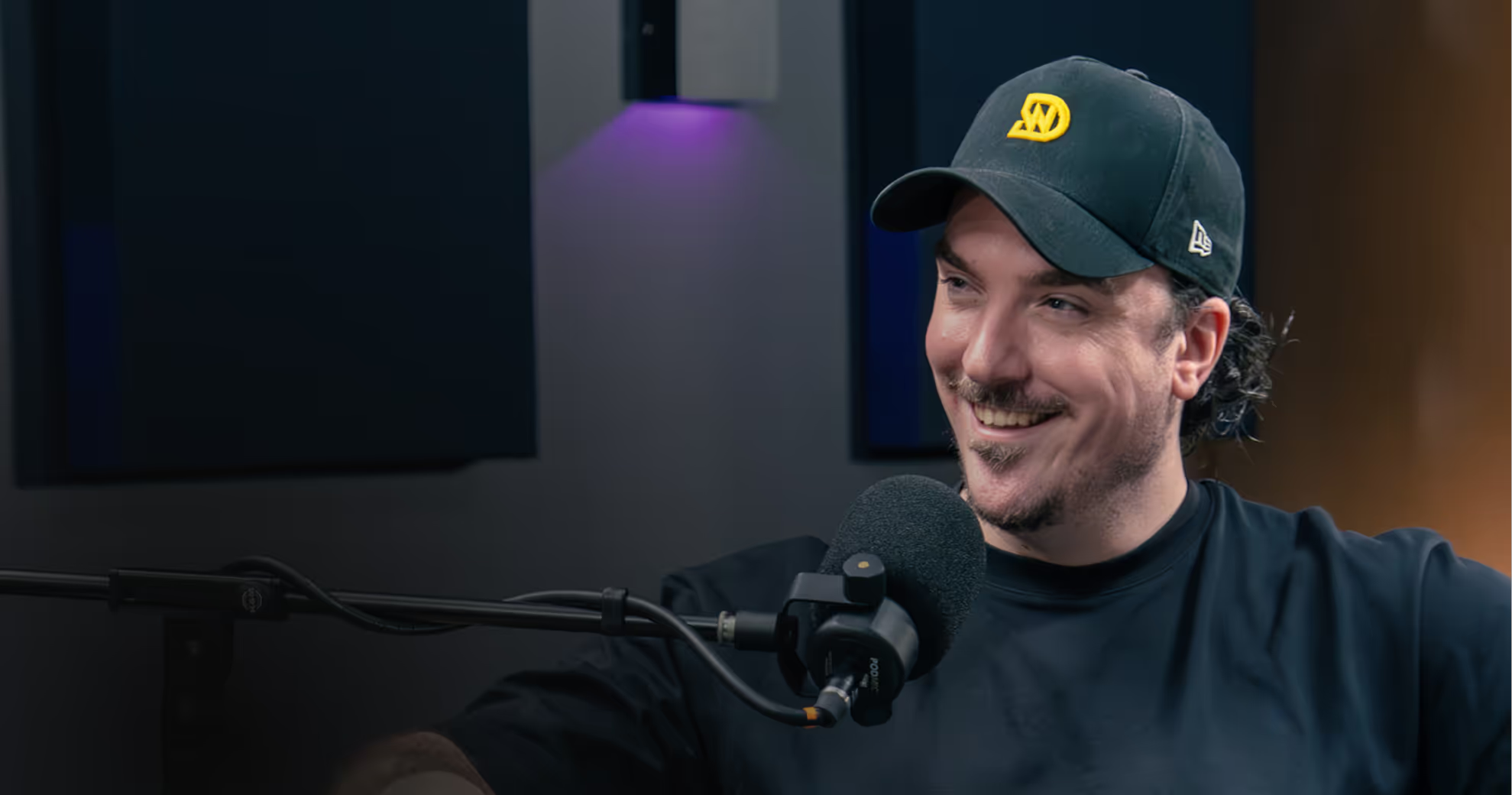
Work With Me

Enquire With Dain’s Team
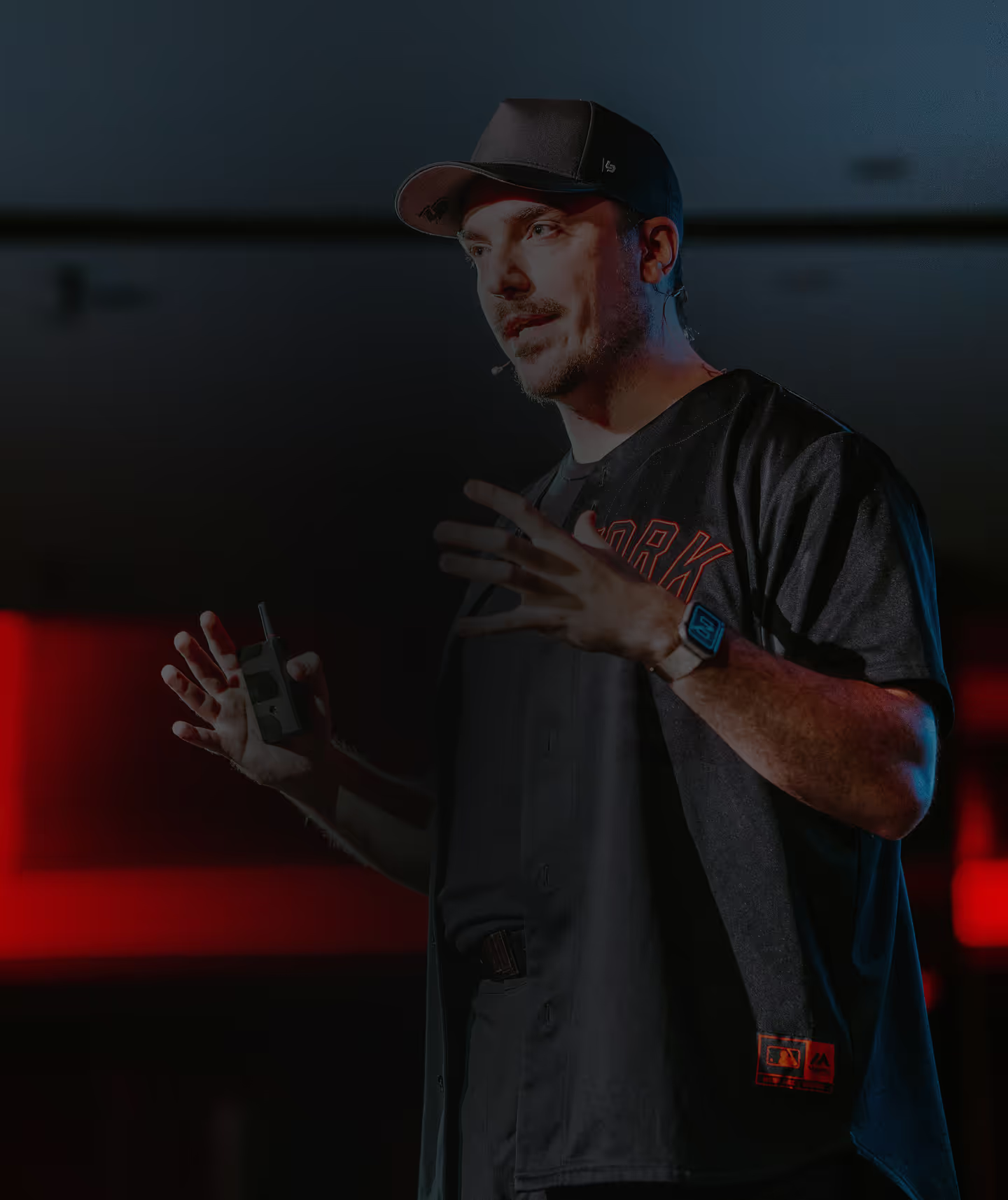
Enquire For Speaking

Let's Get You Branded
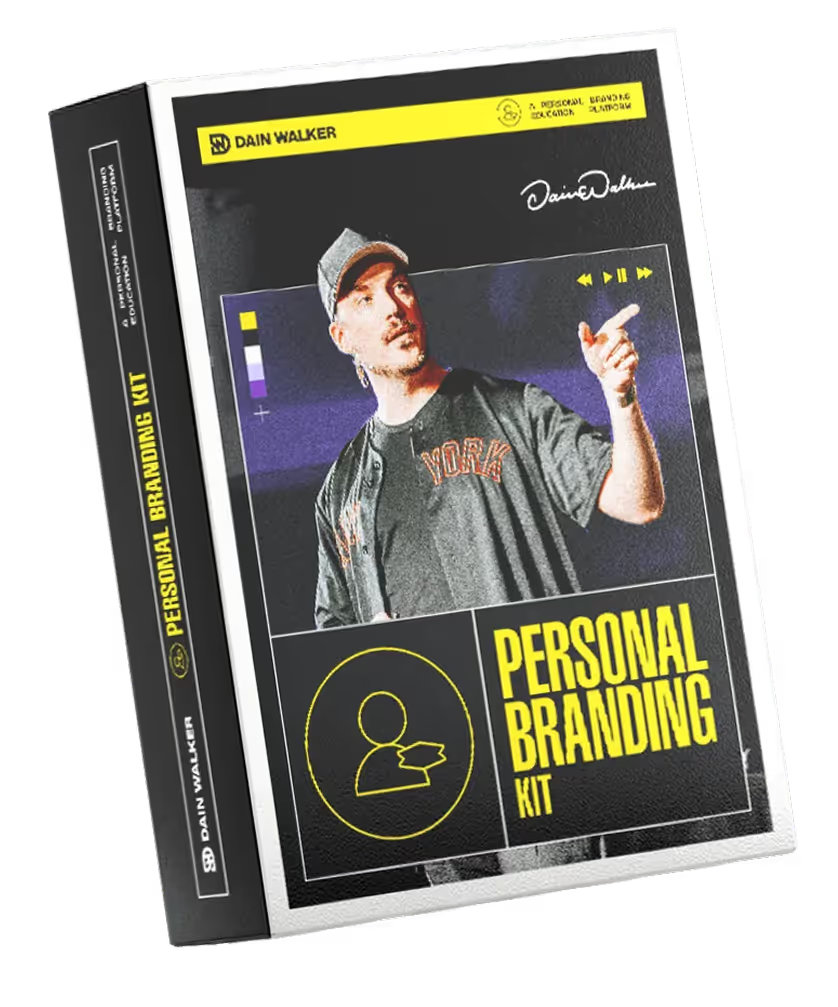
Apply to be a guest
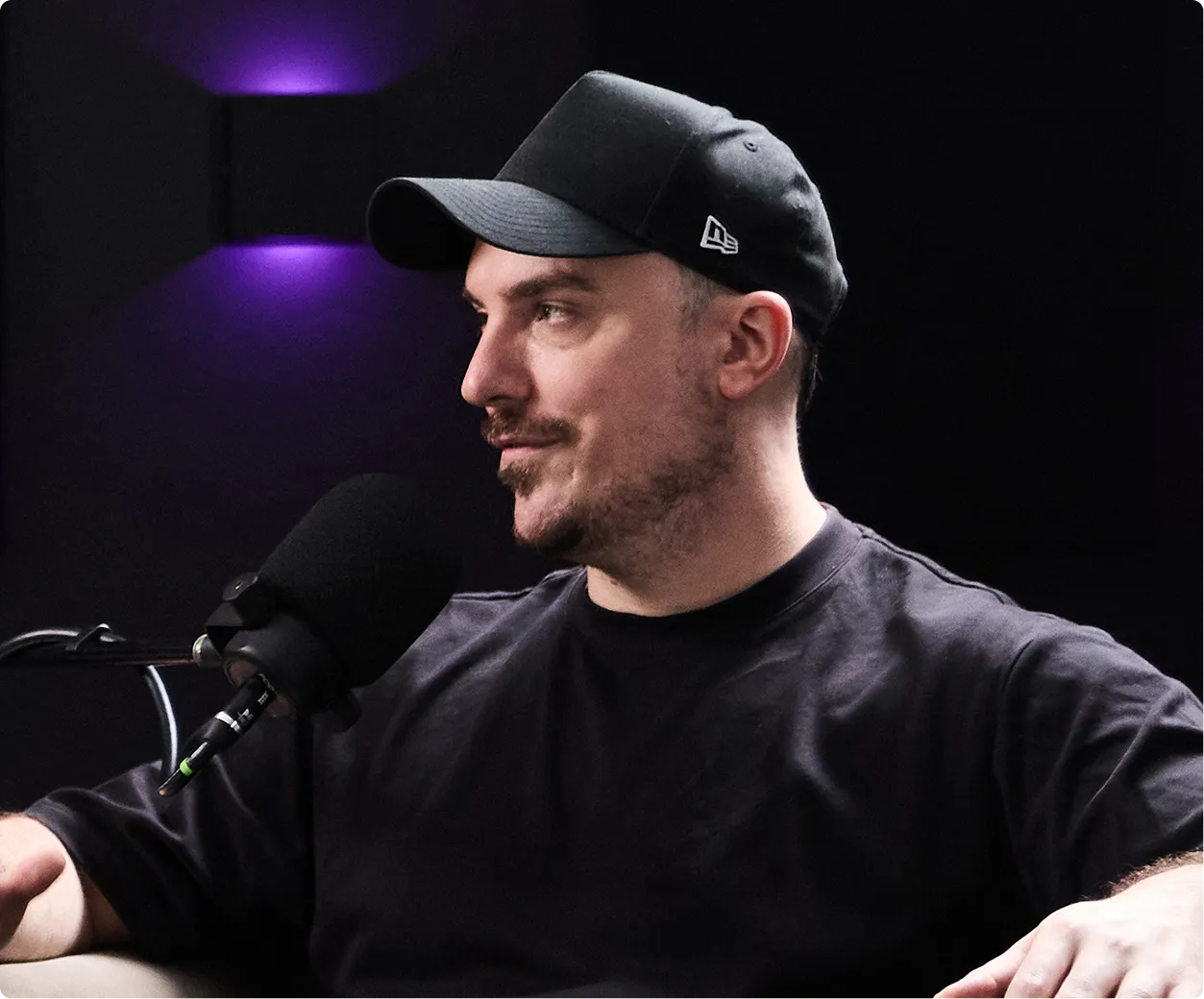
Dive into insights from industry leaders and experts.

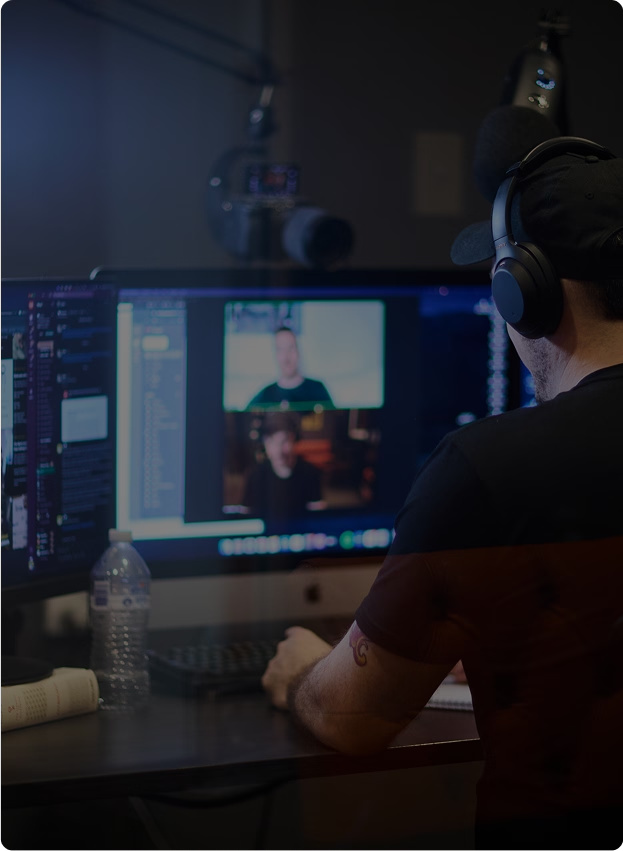
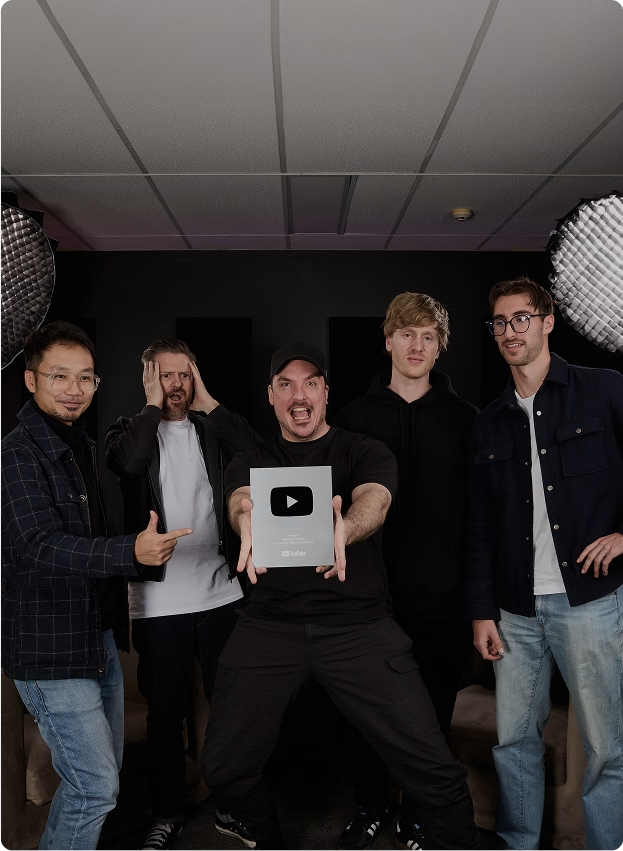
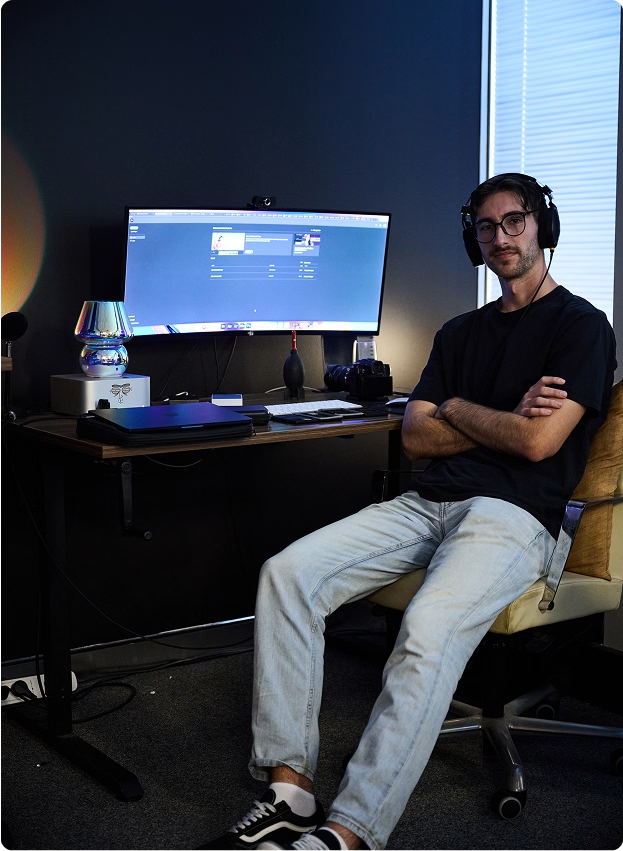
Stream now
Dive into expert advice and industry trends.
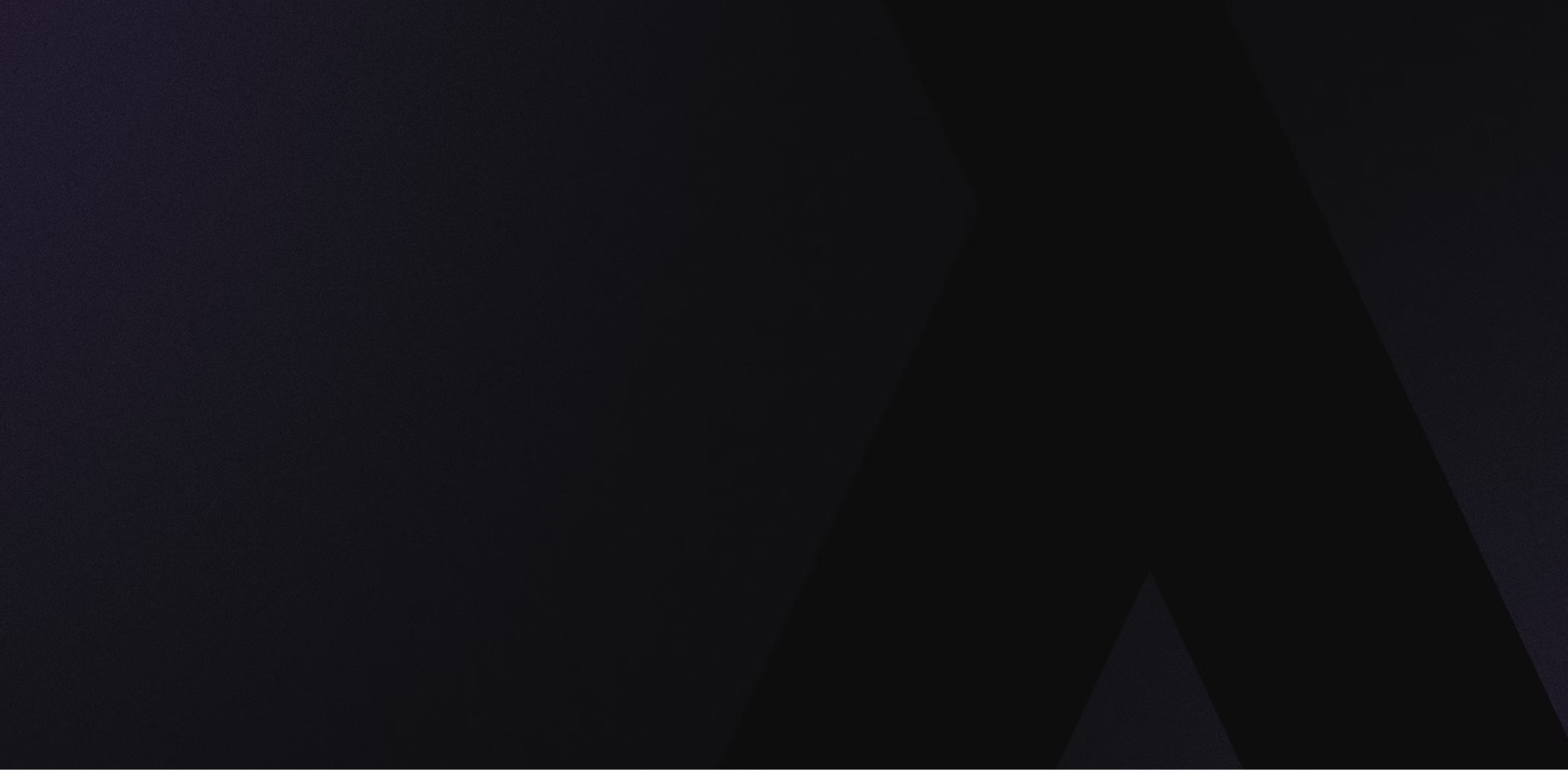

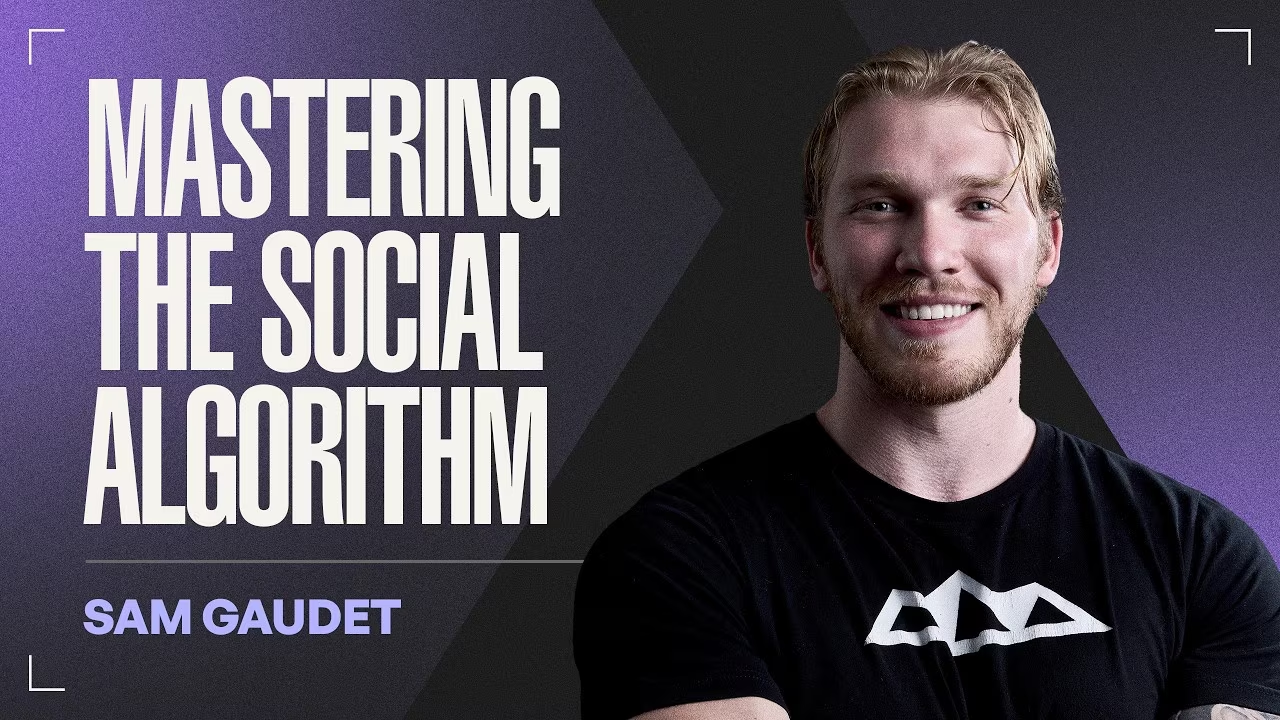
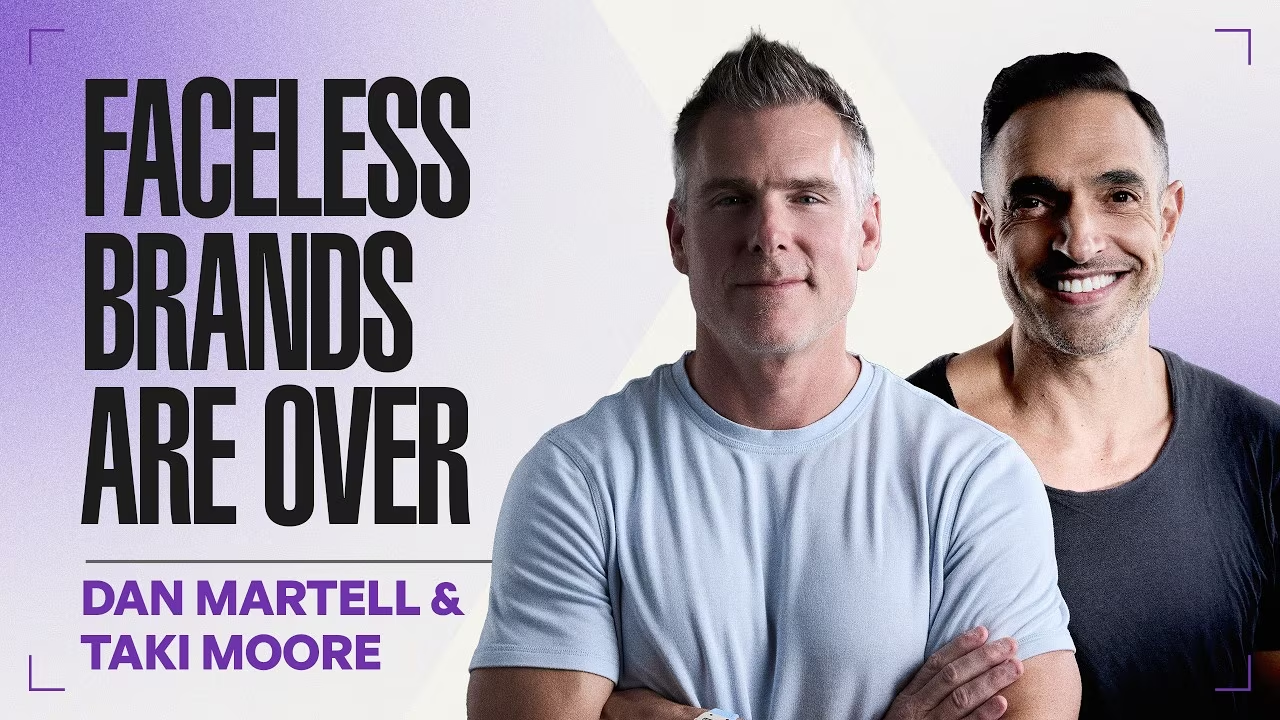
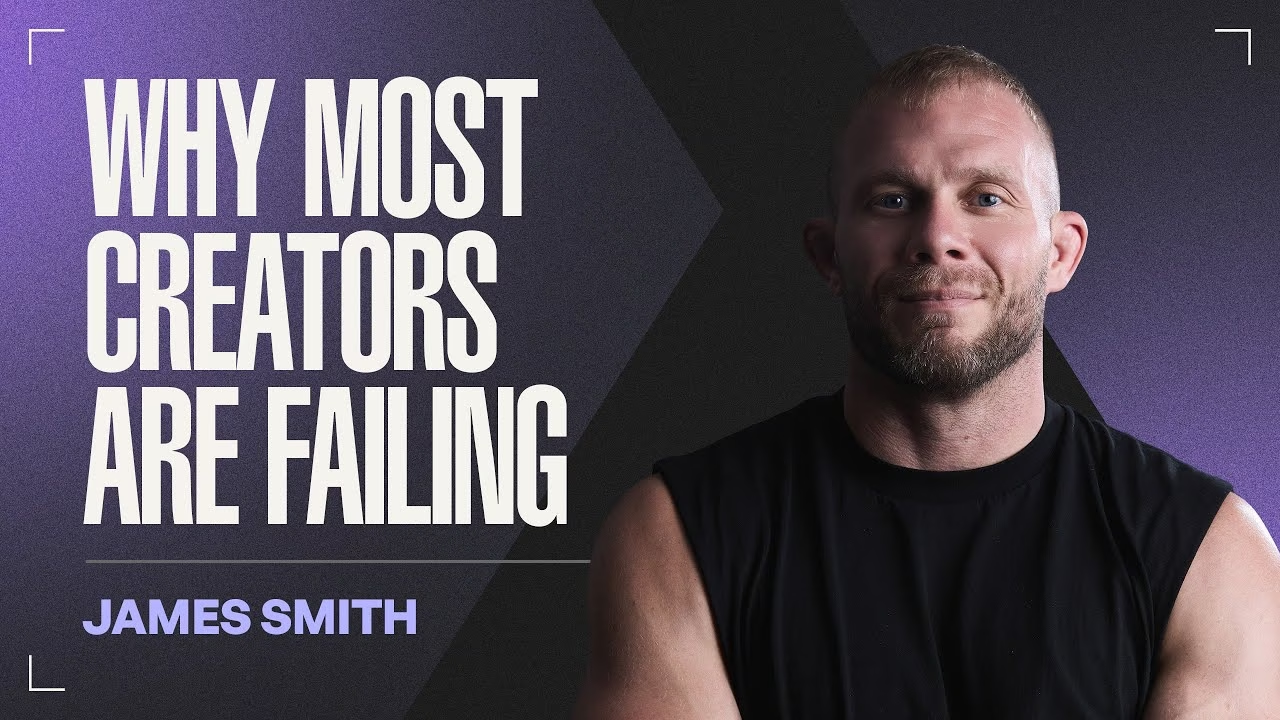
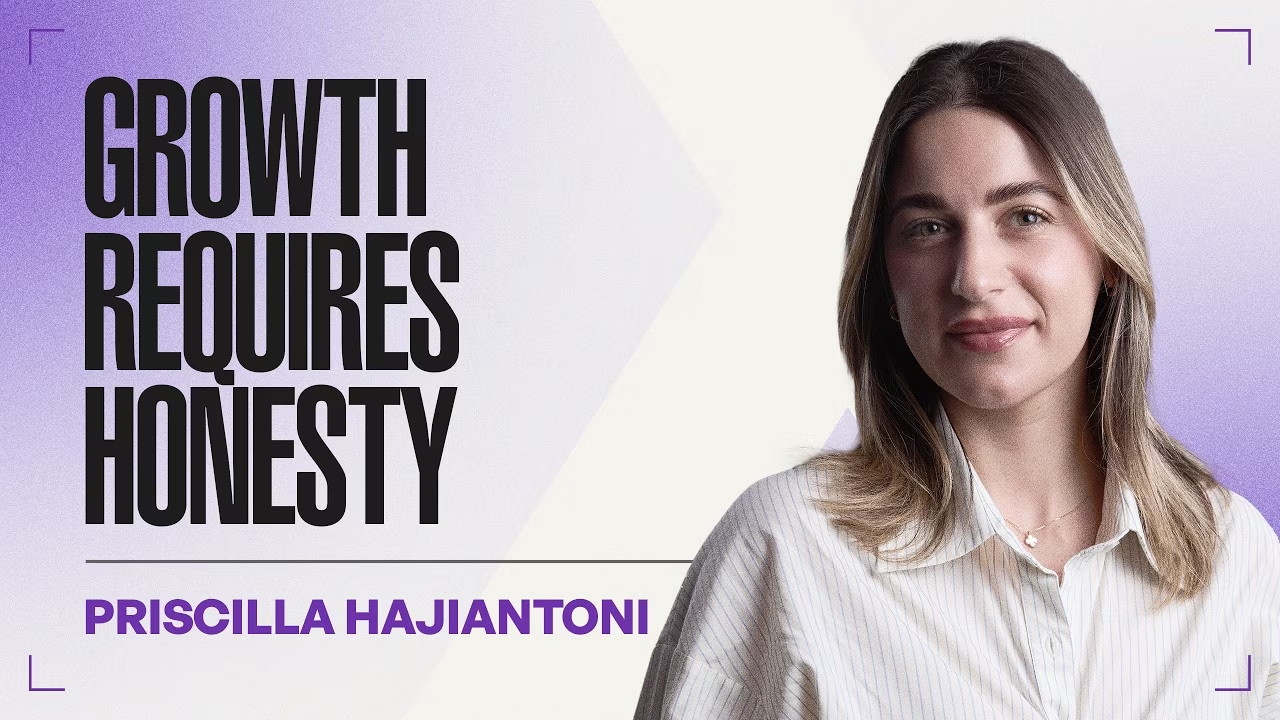
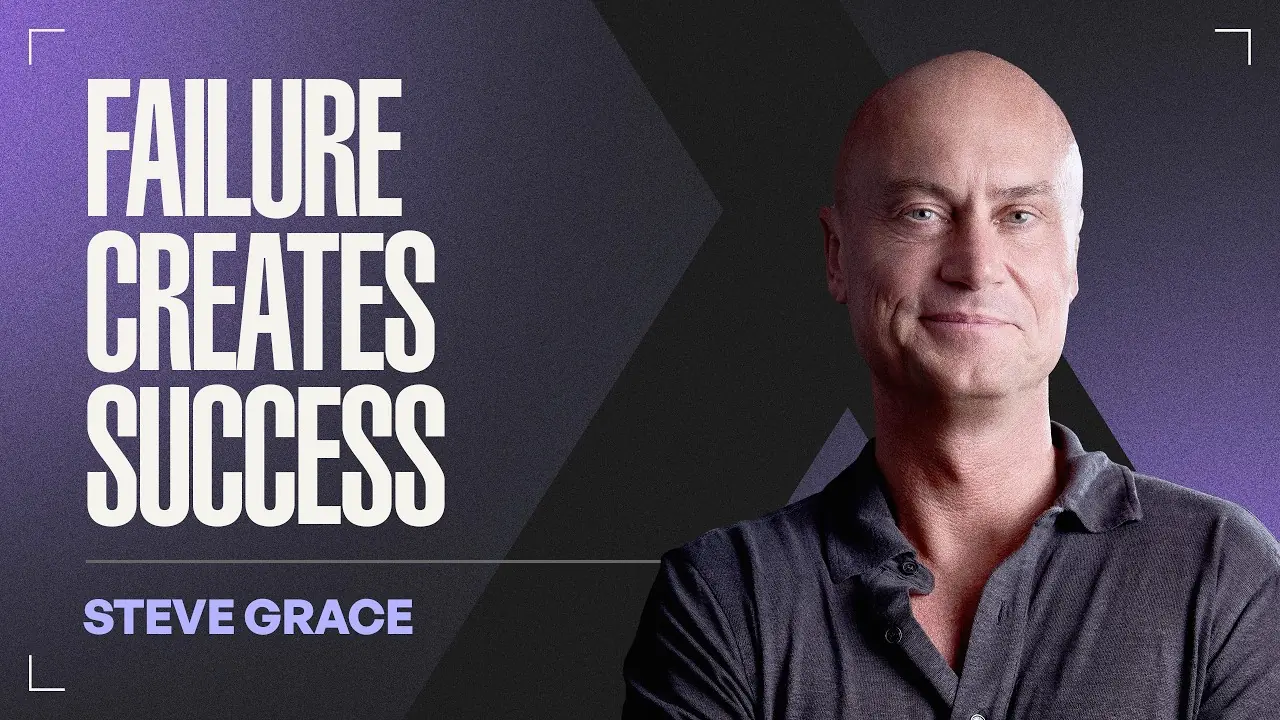

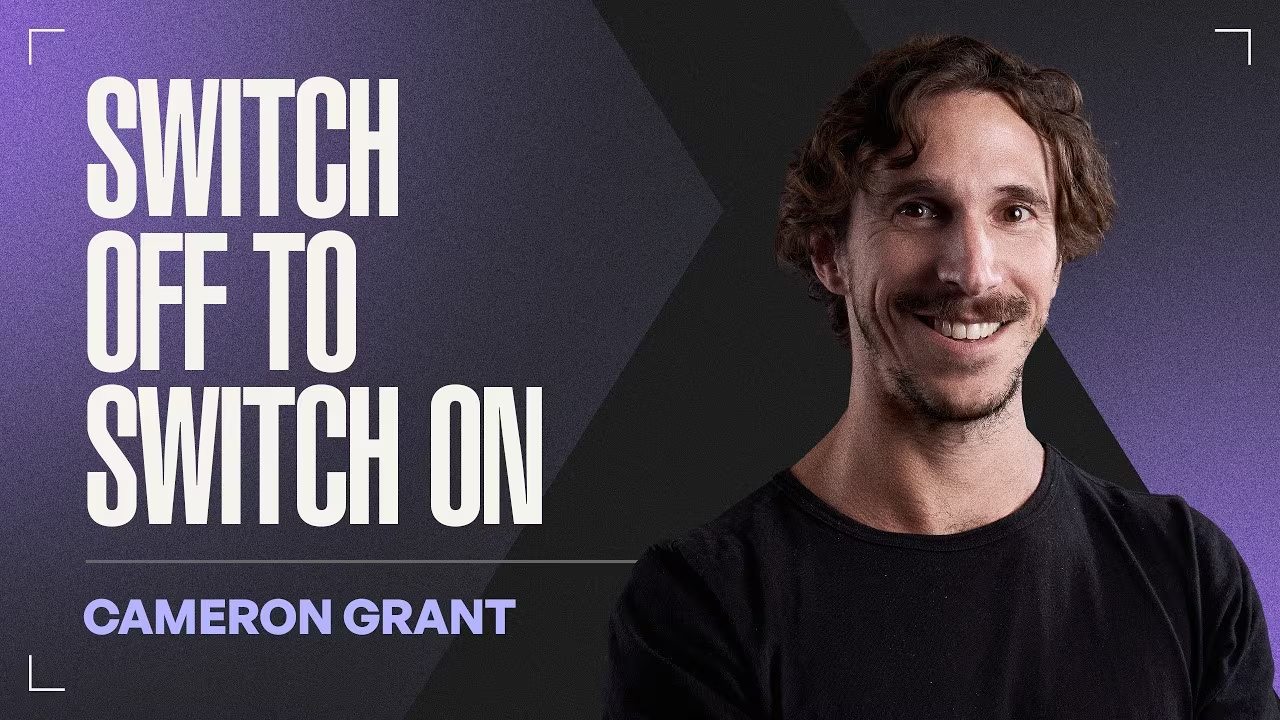

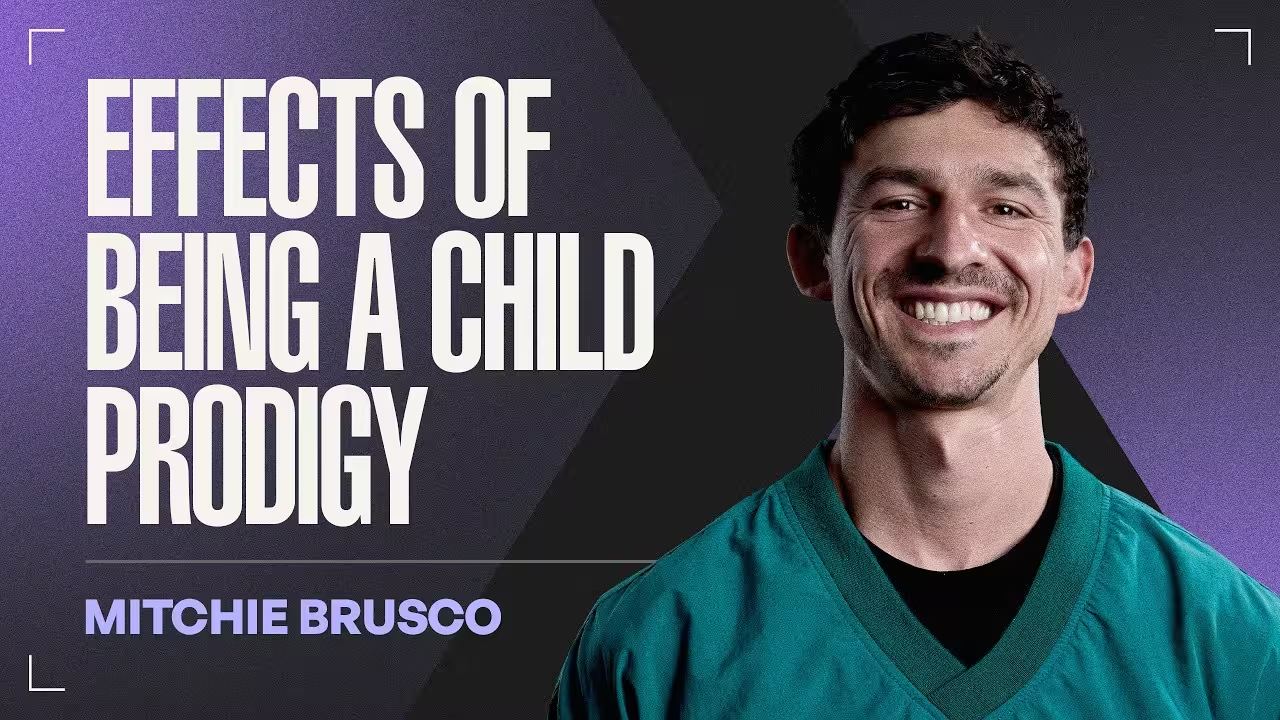
.avif)
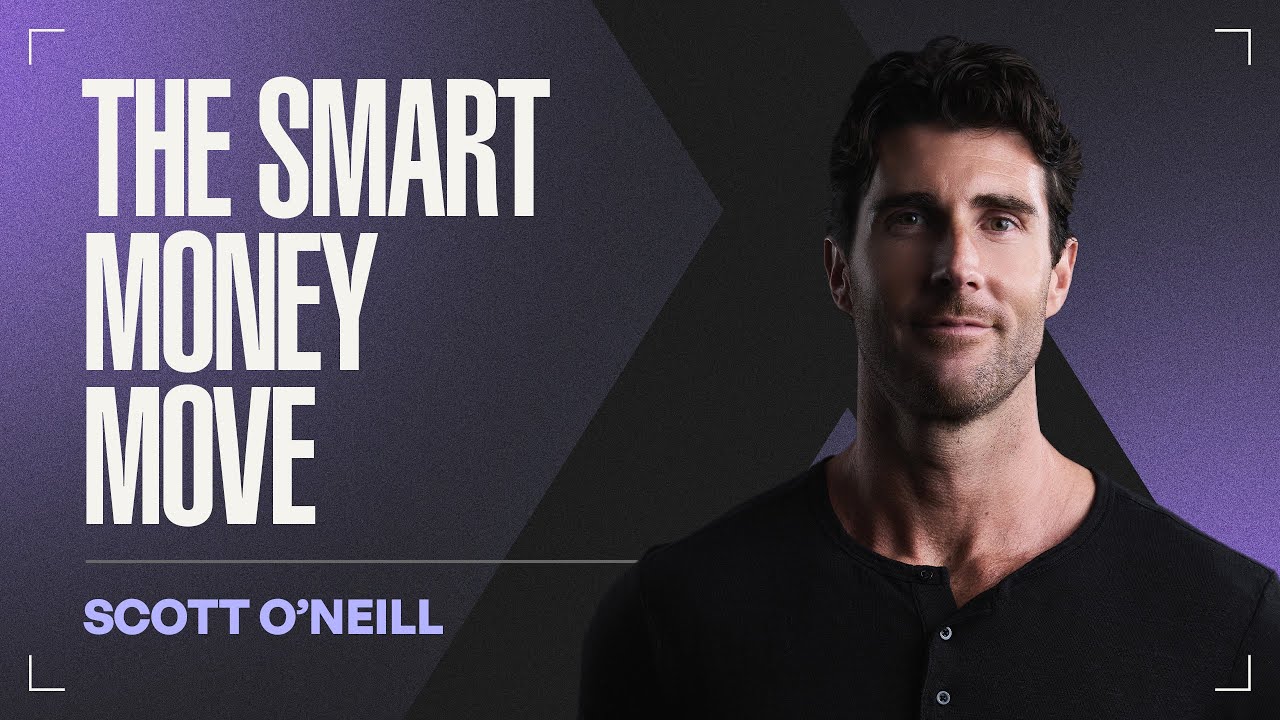
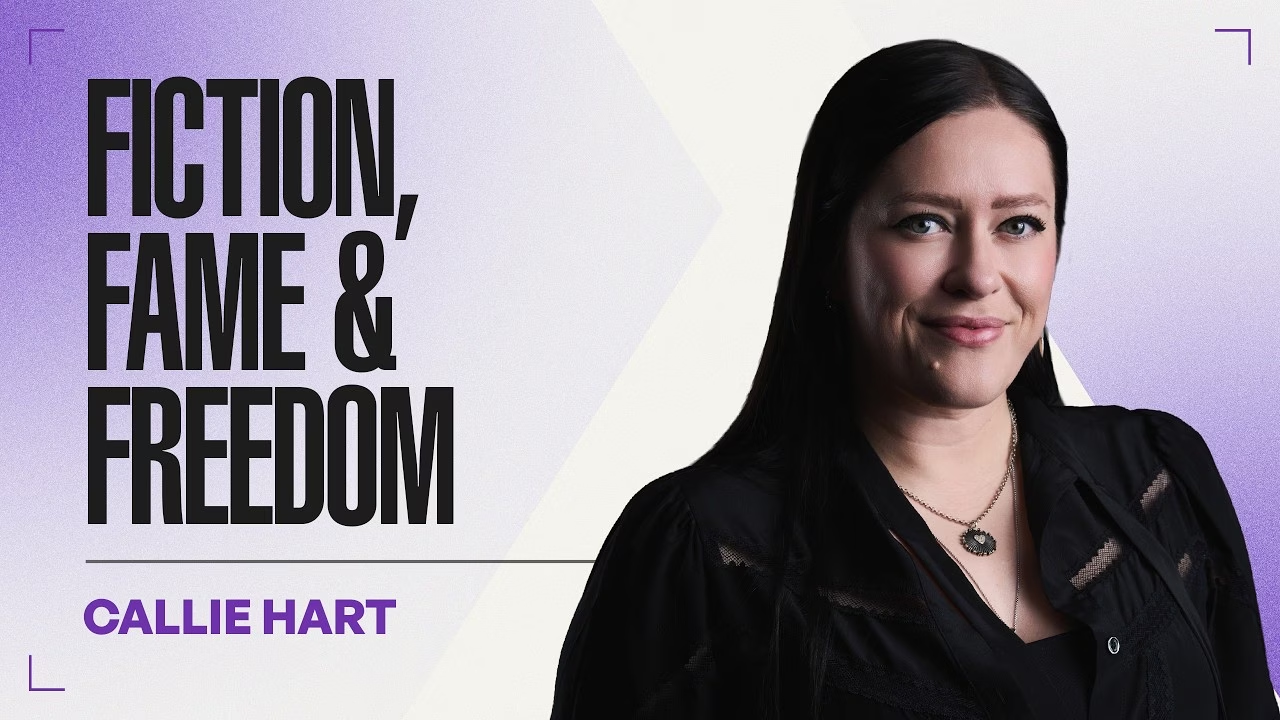

.avif)
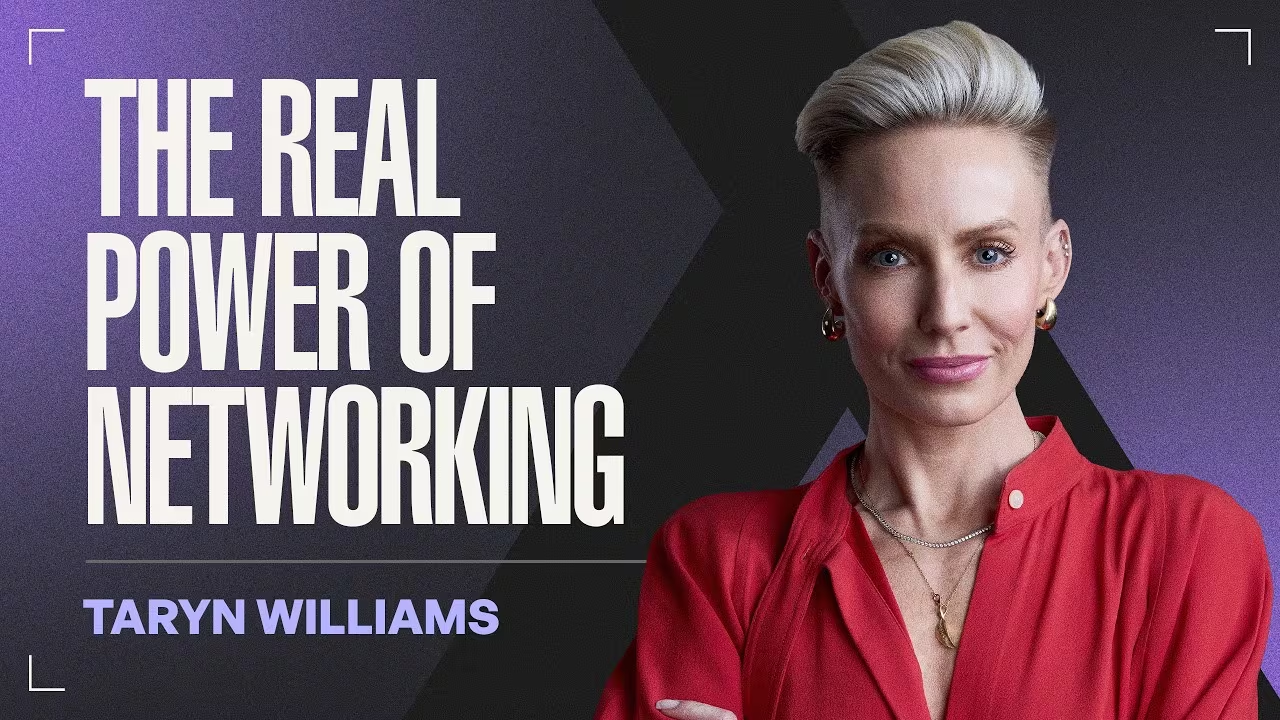

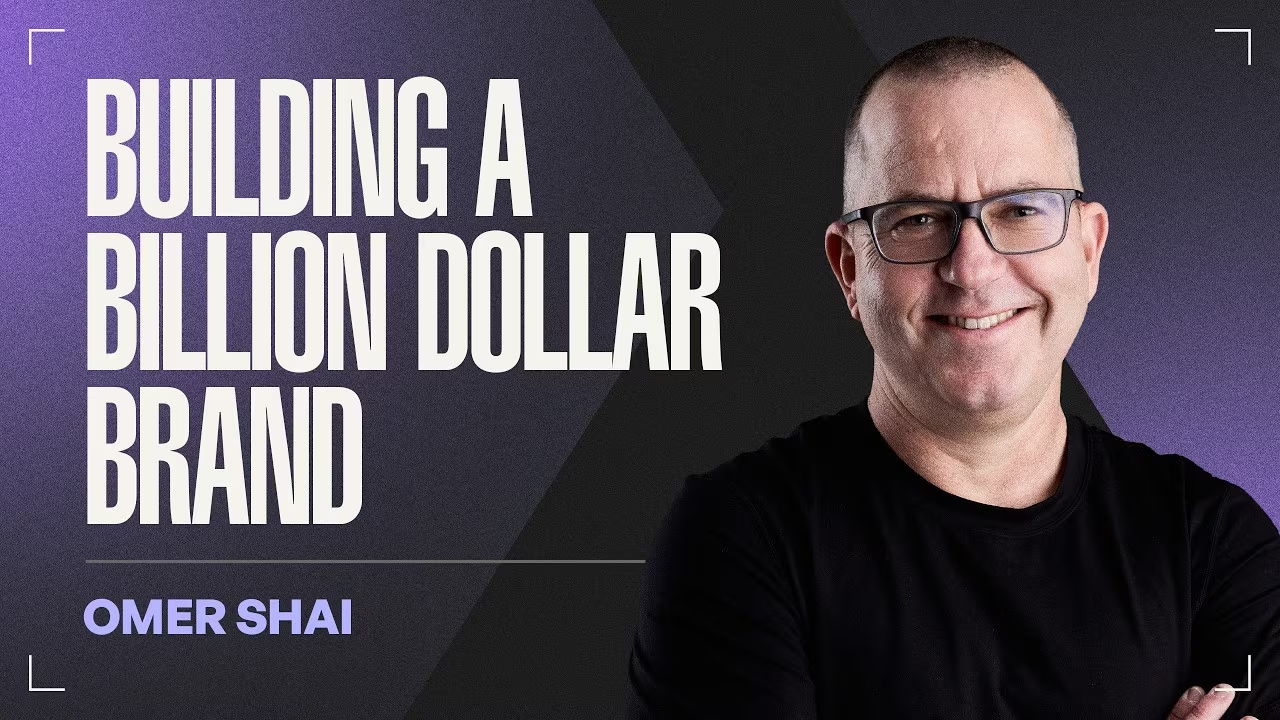
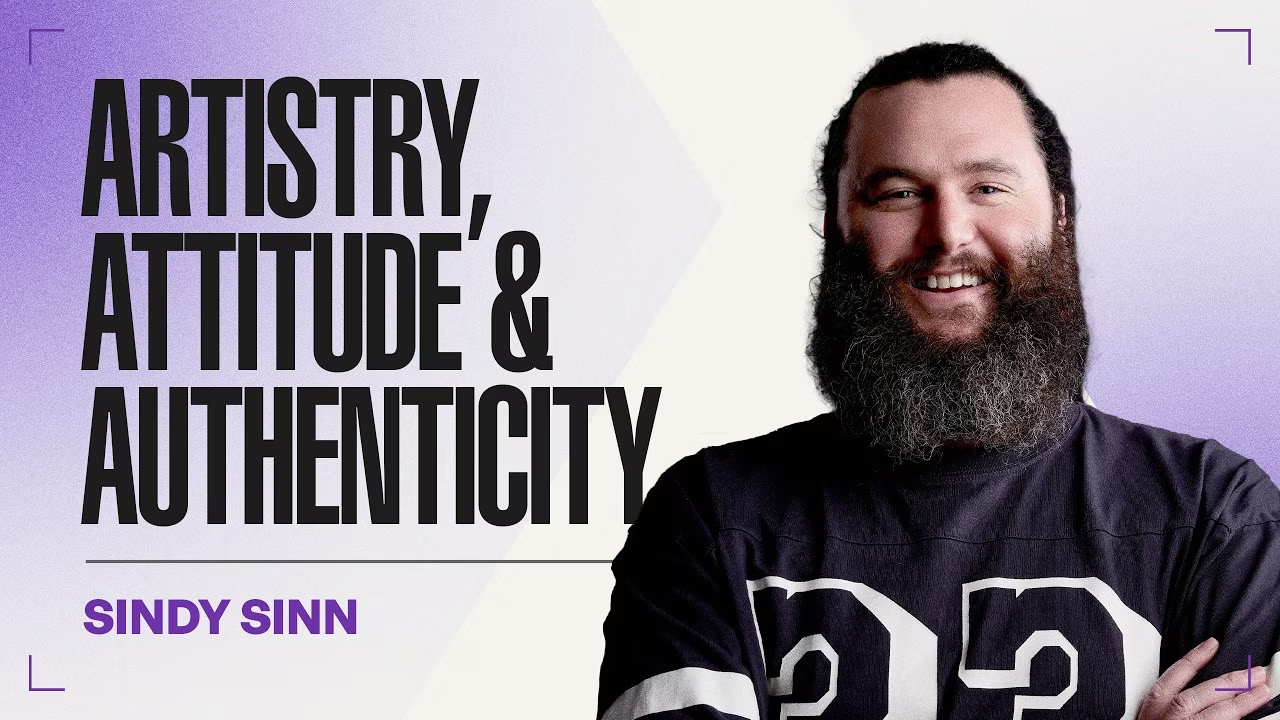
%20(1).avif)
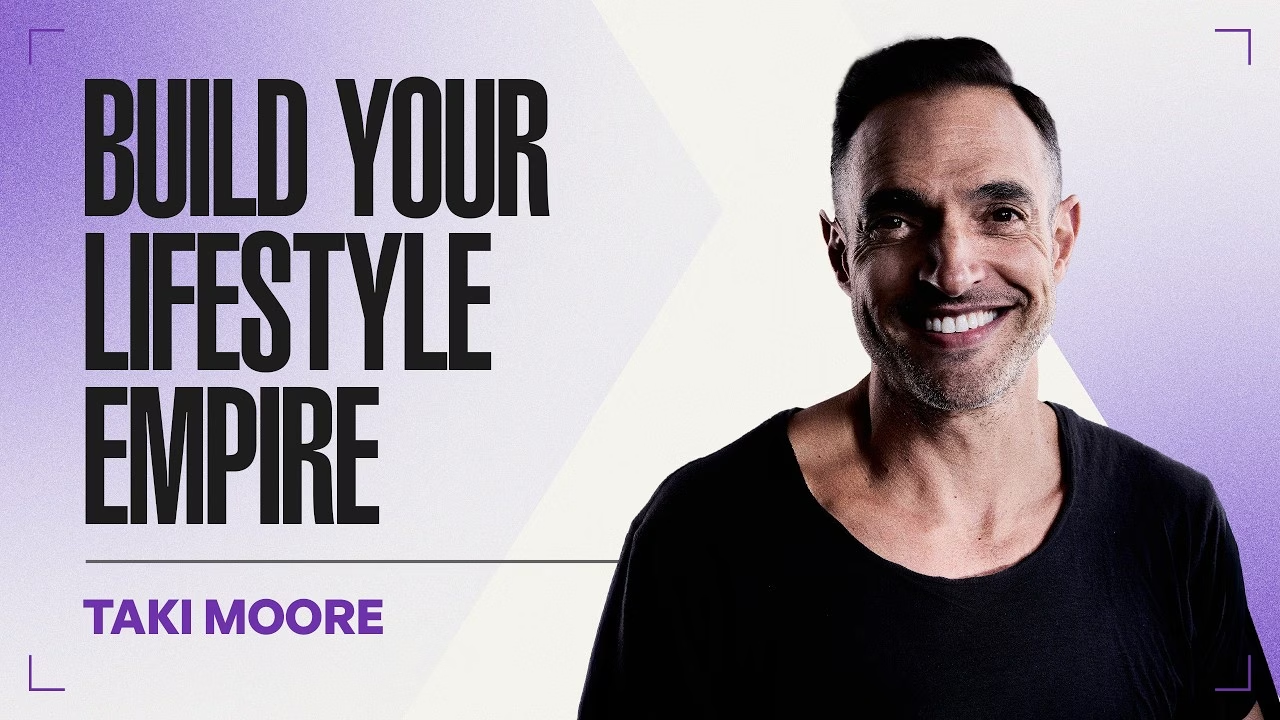
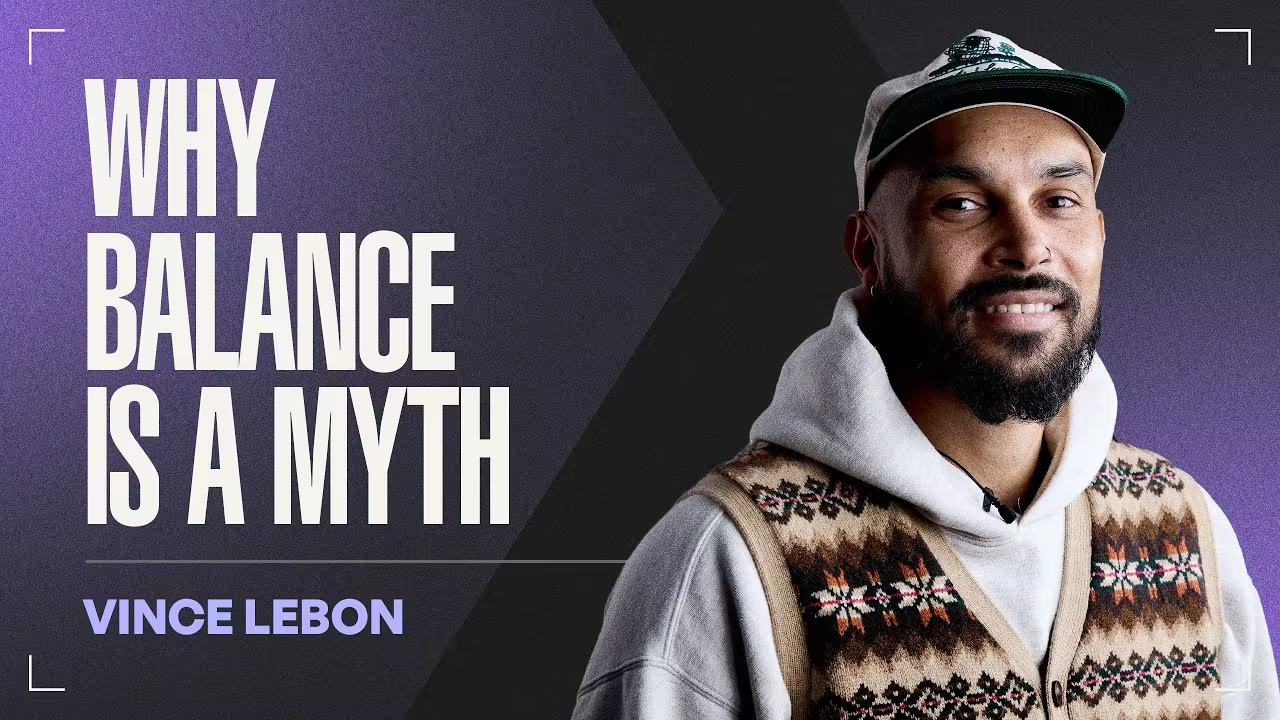

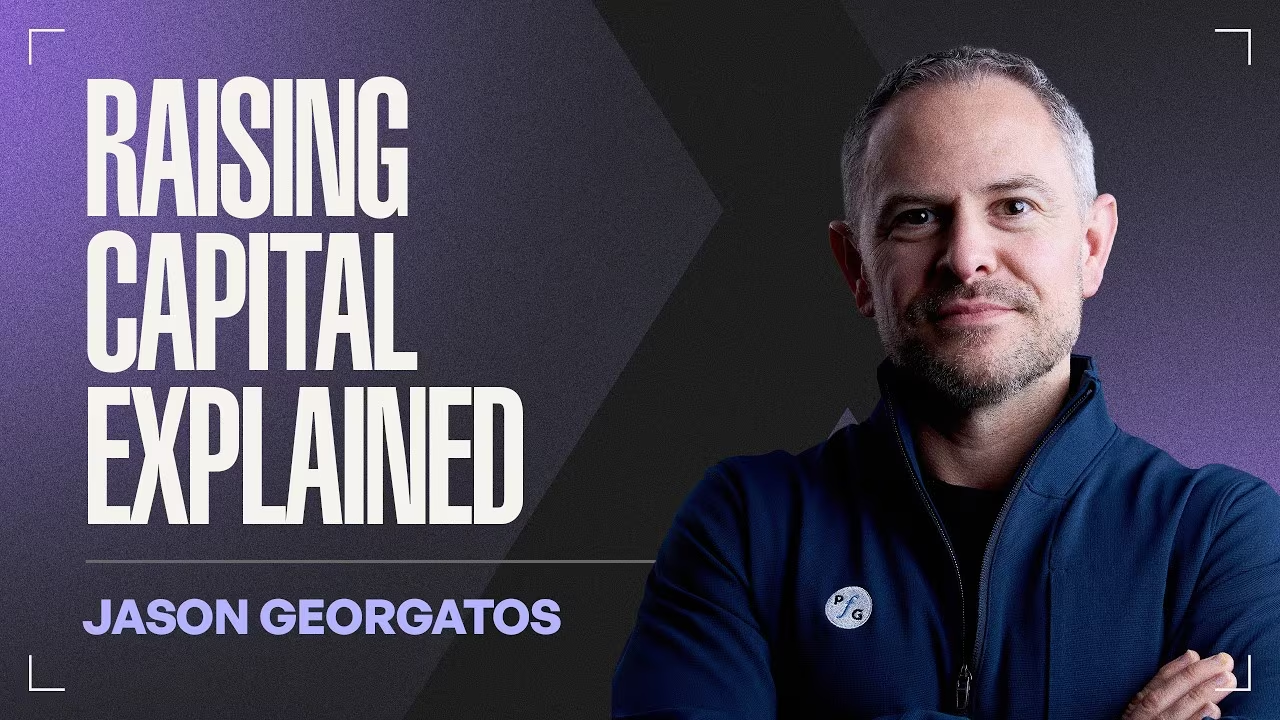
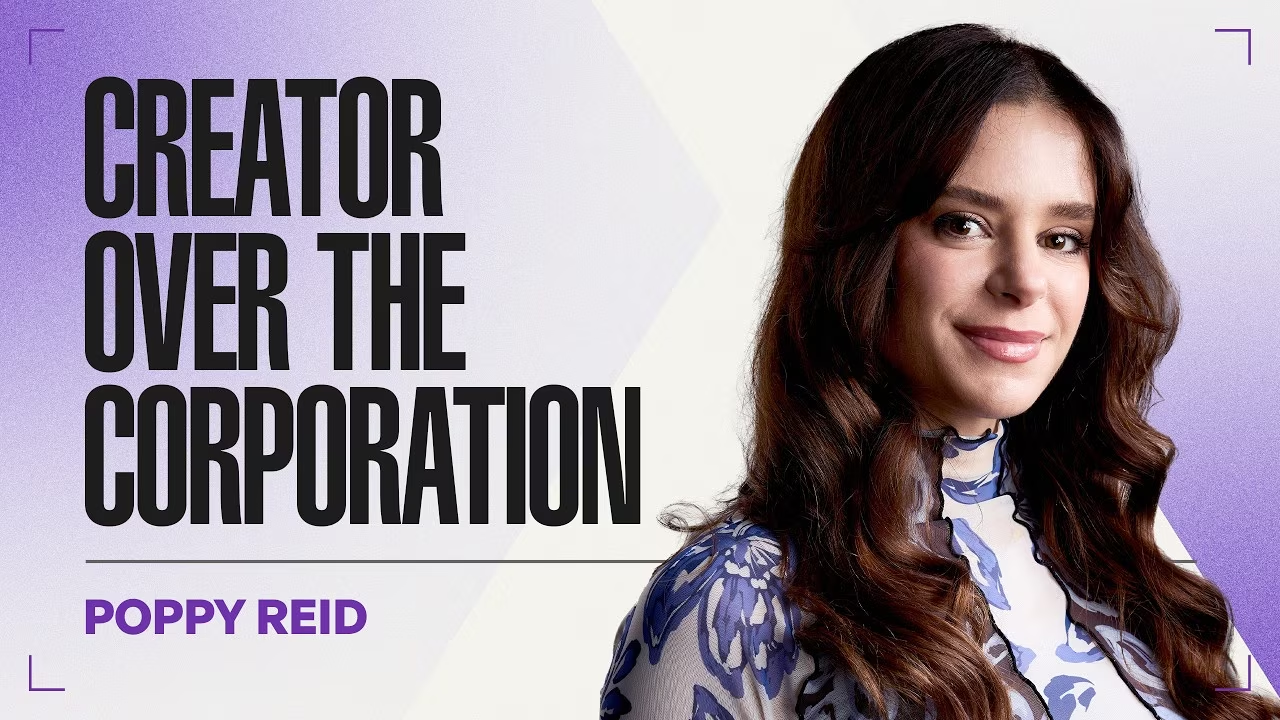
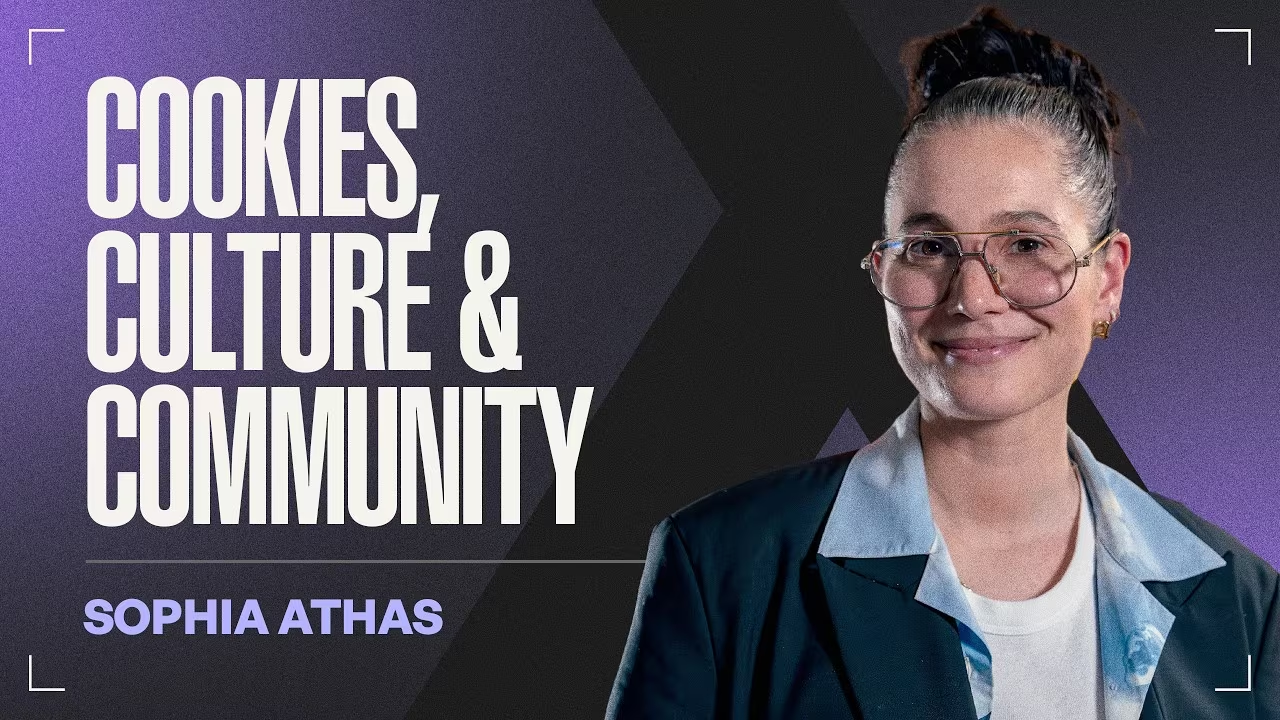

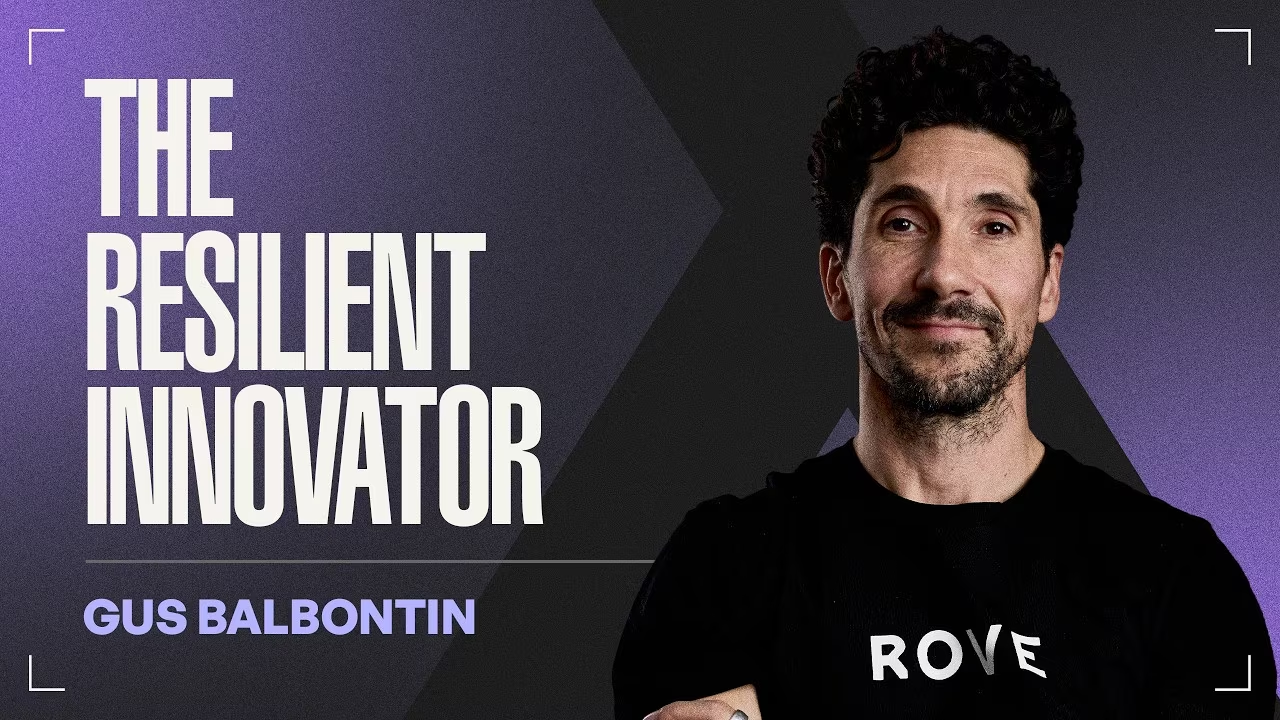
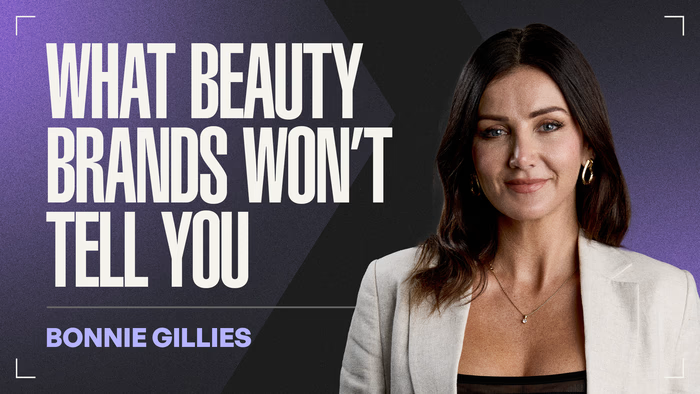


.avif)

